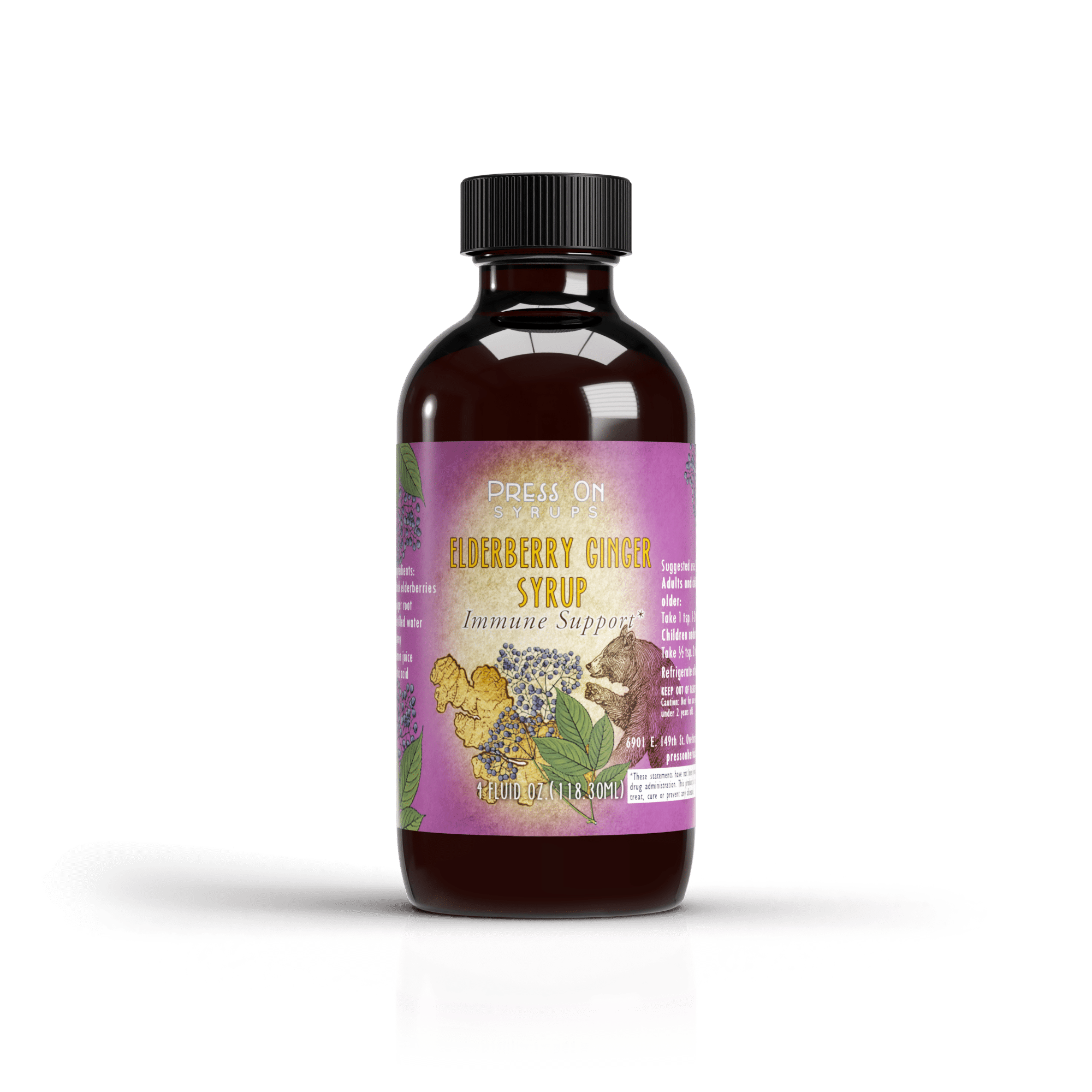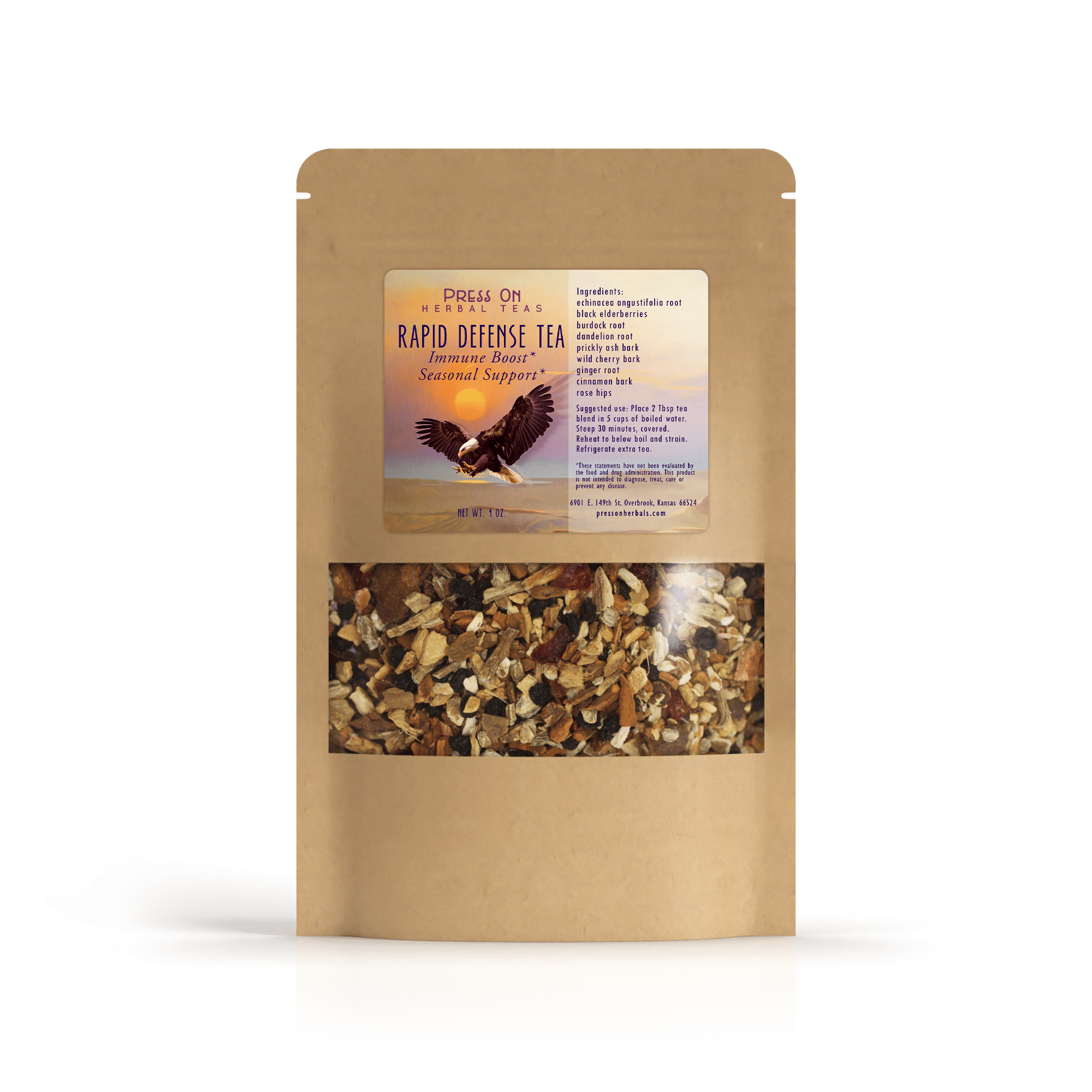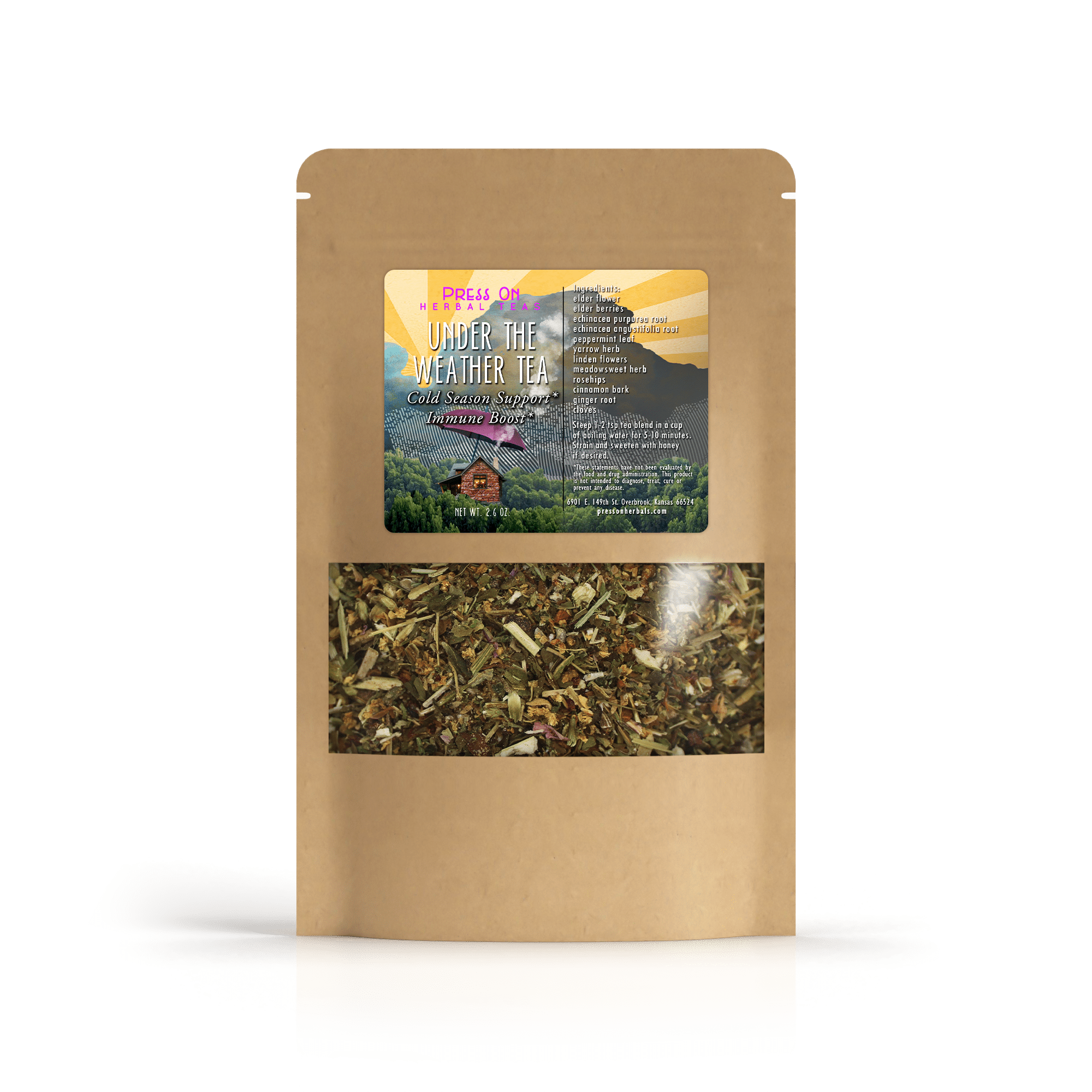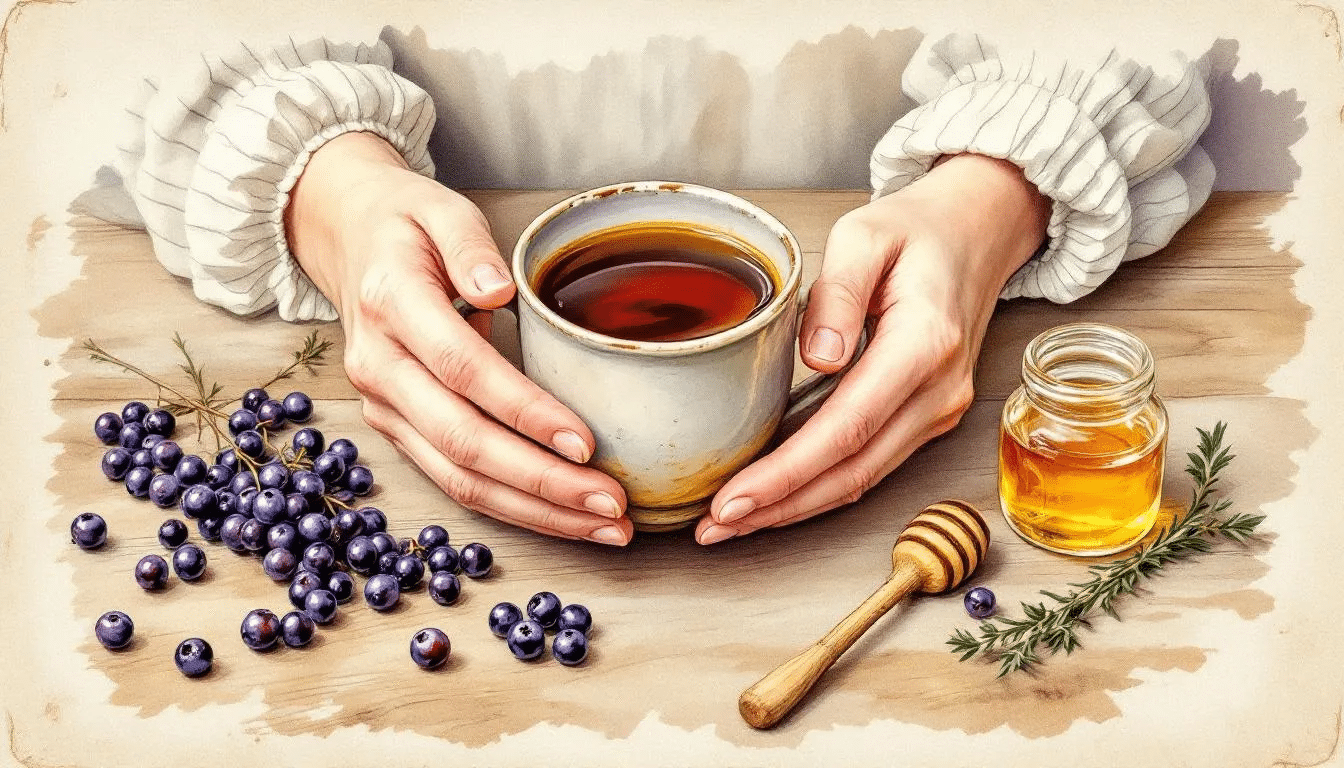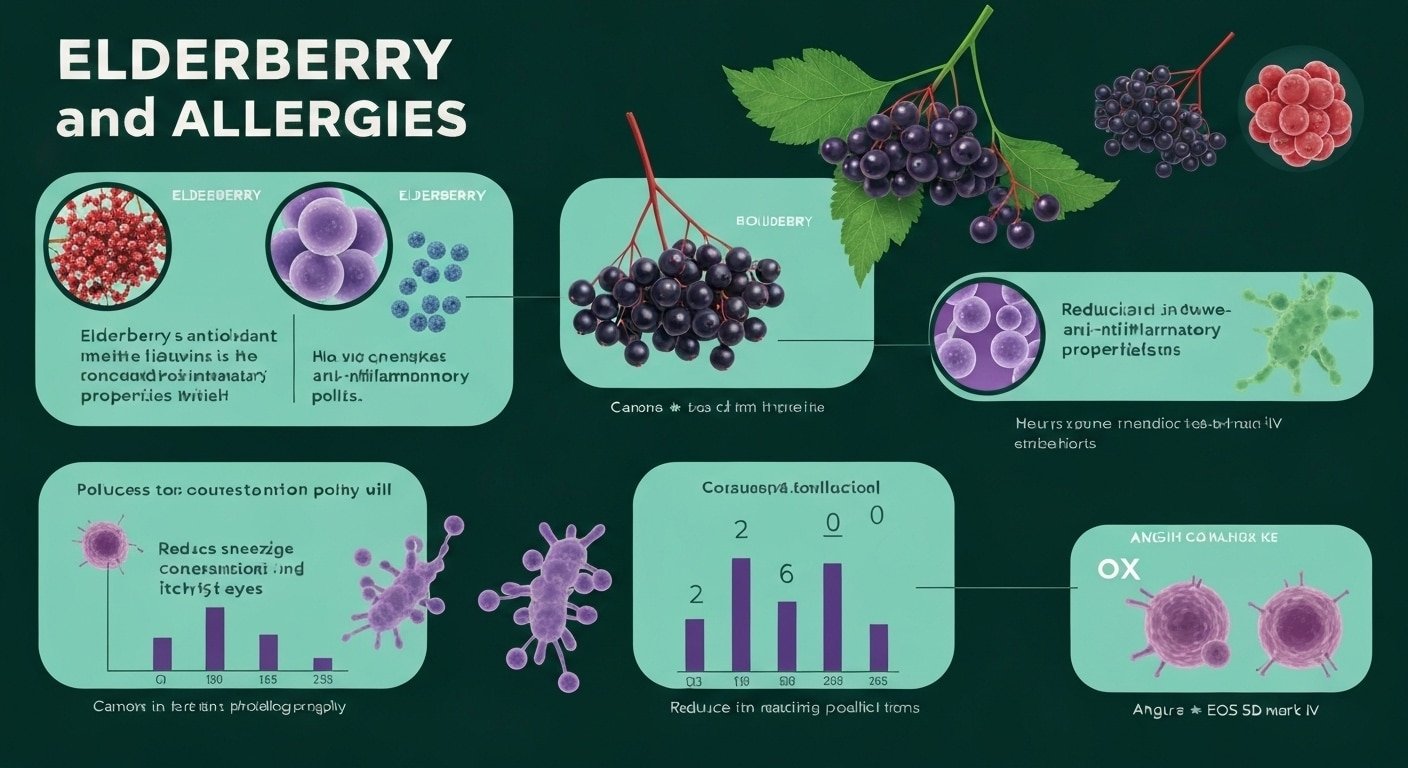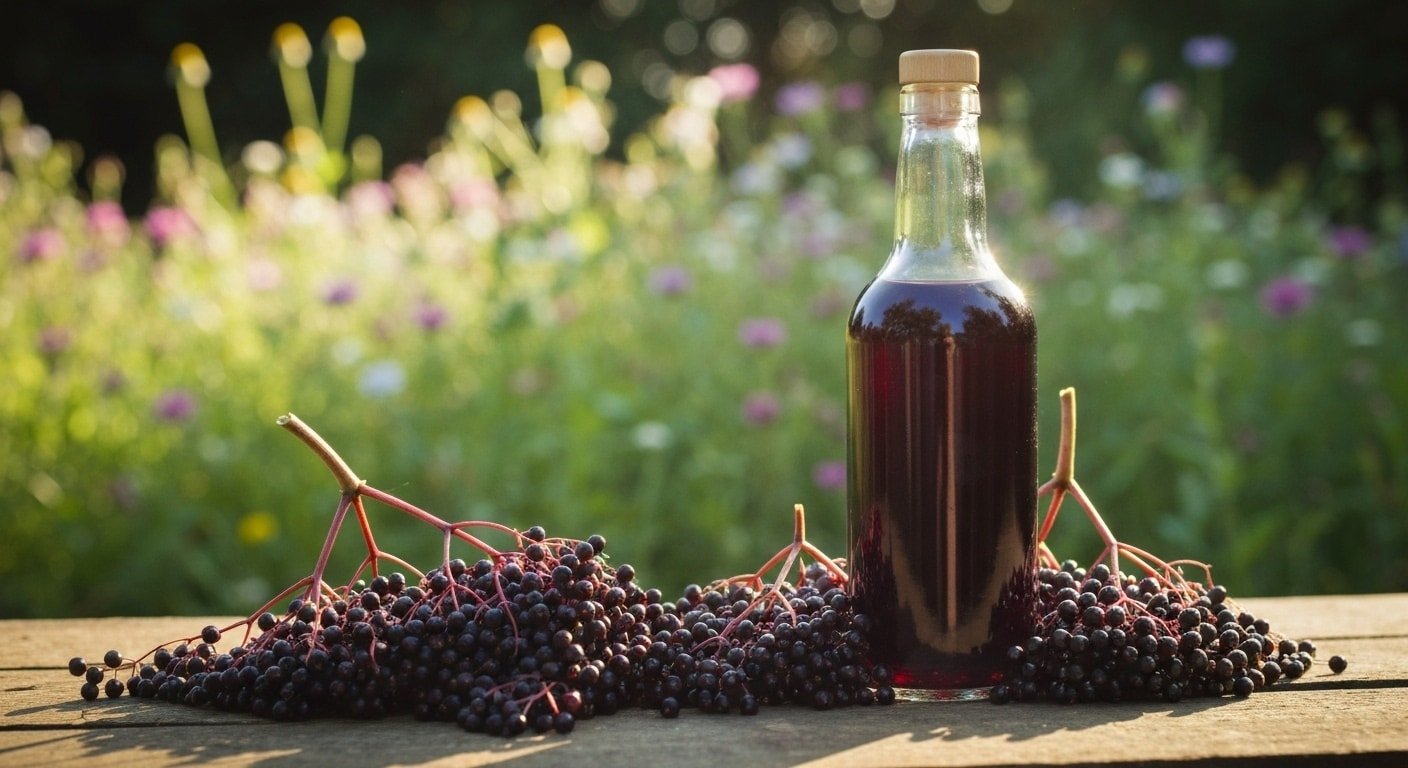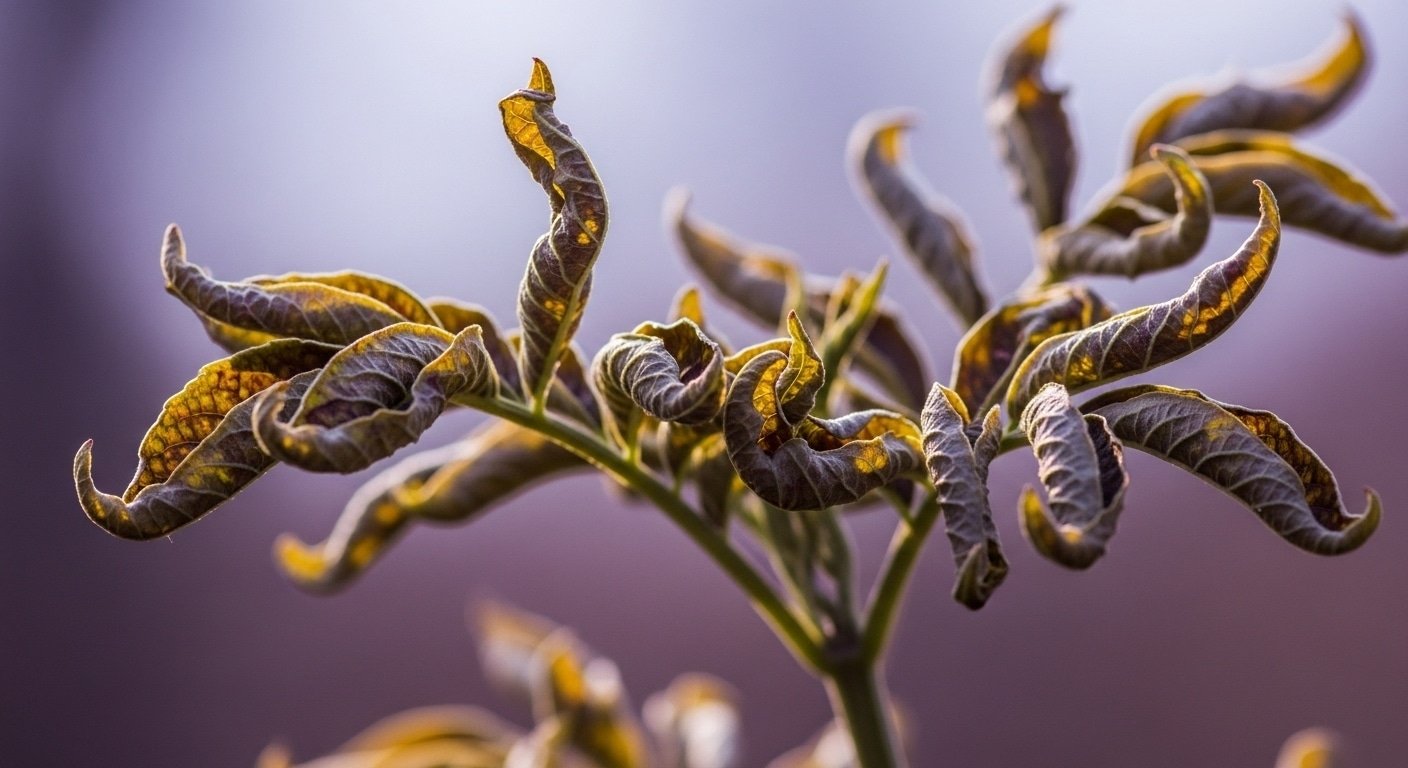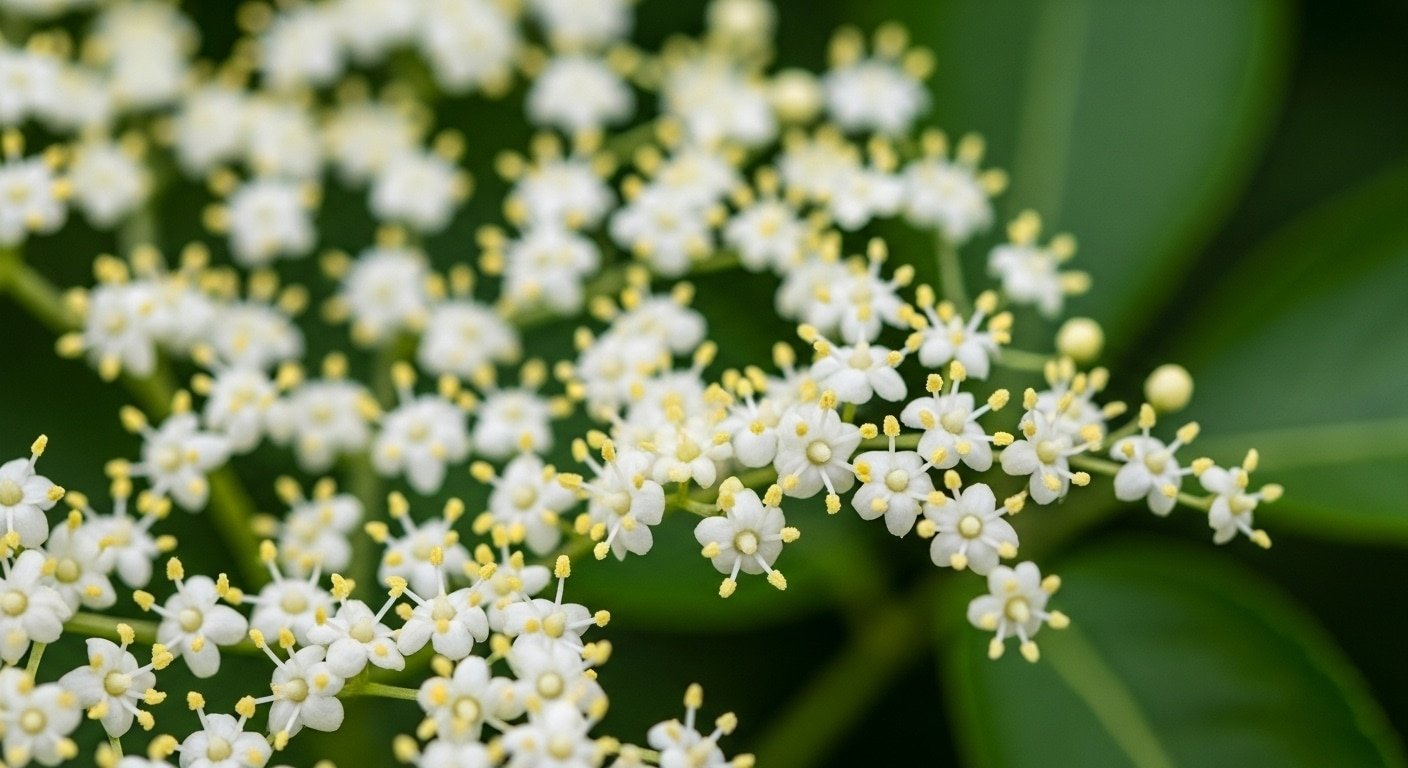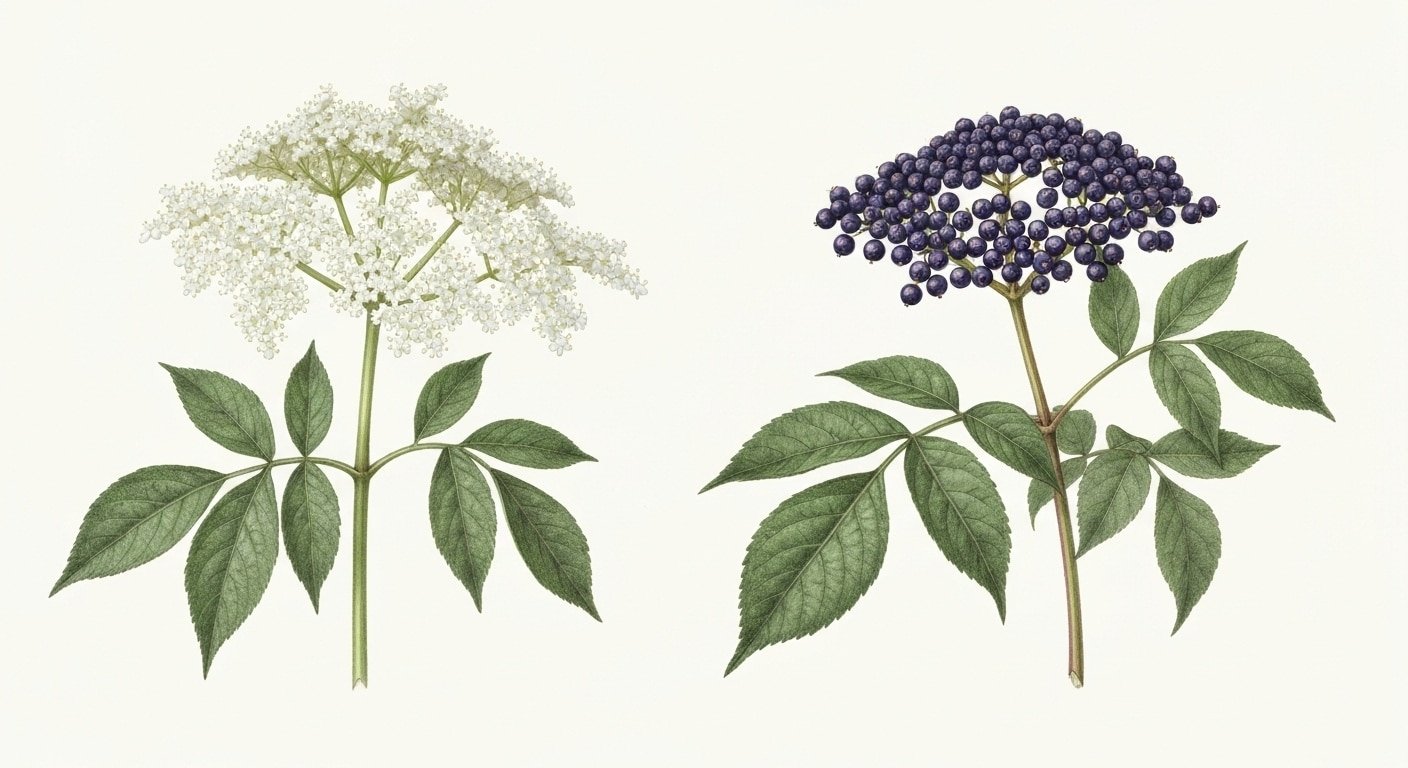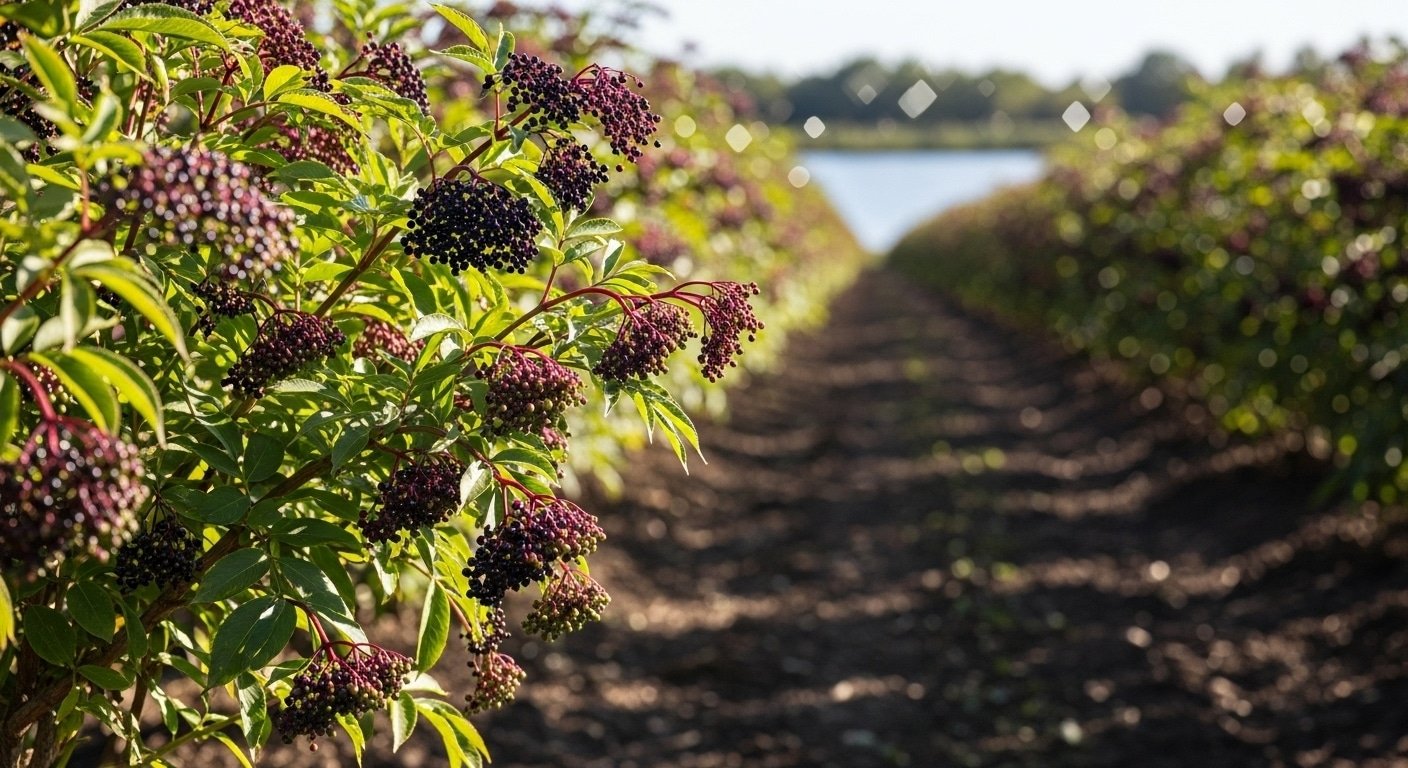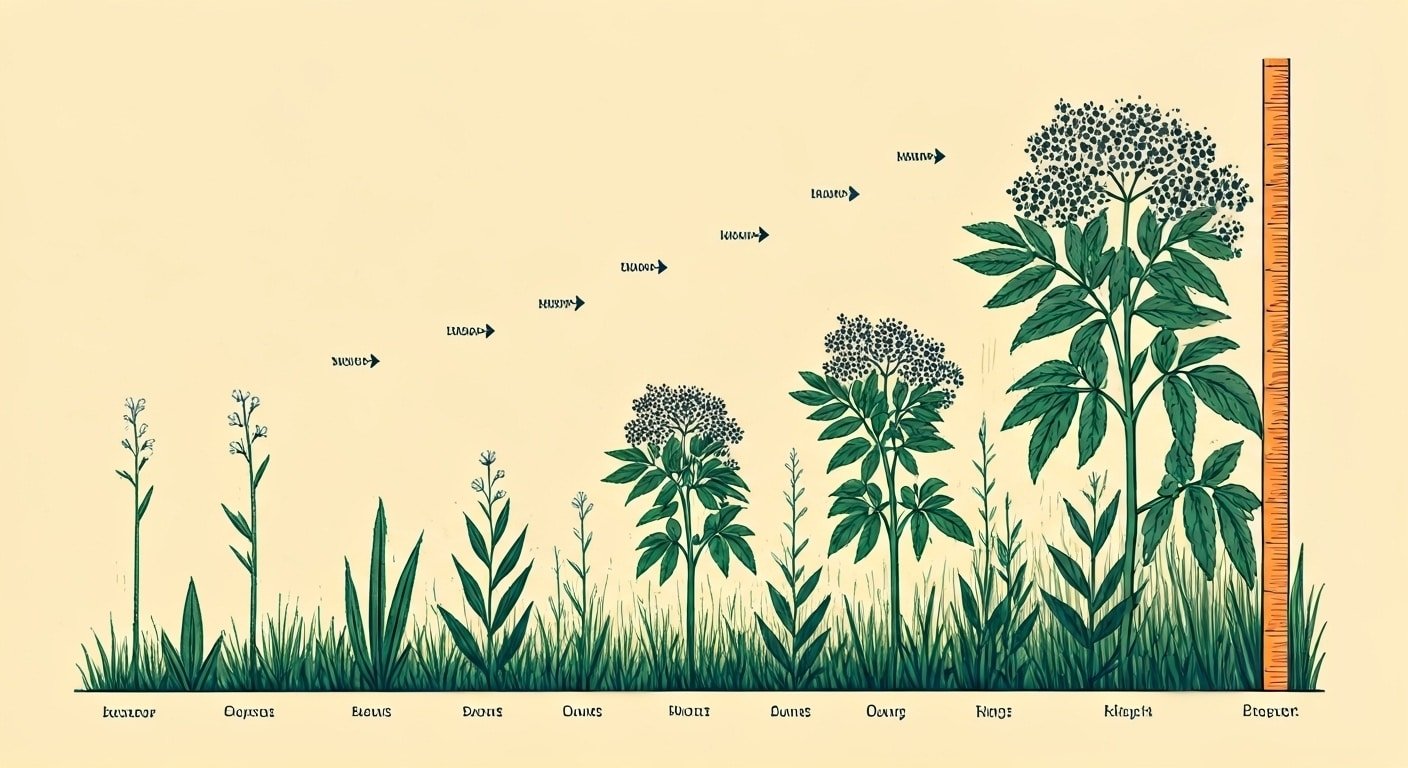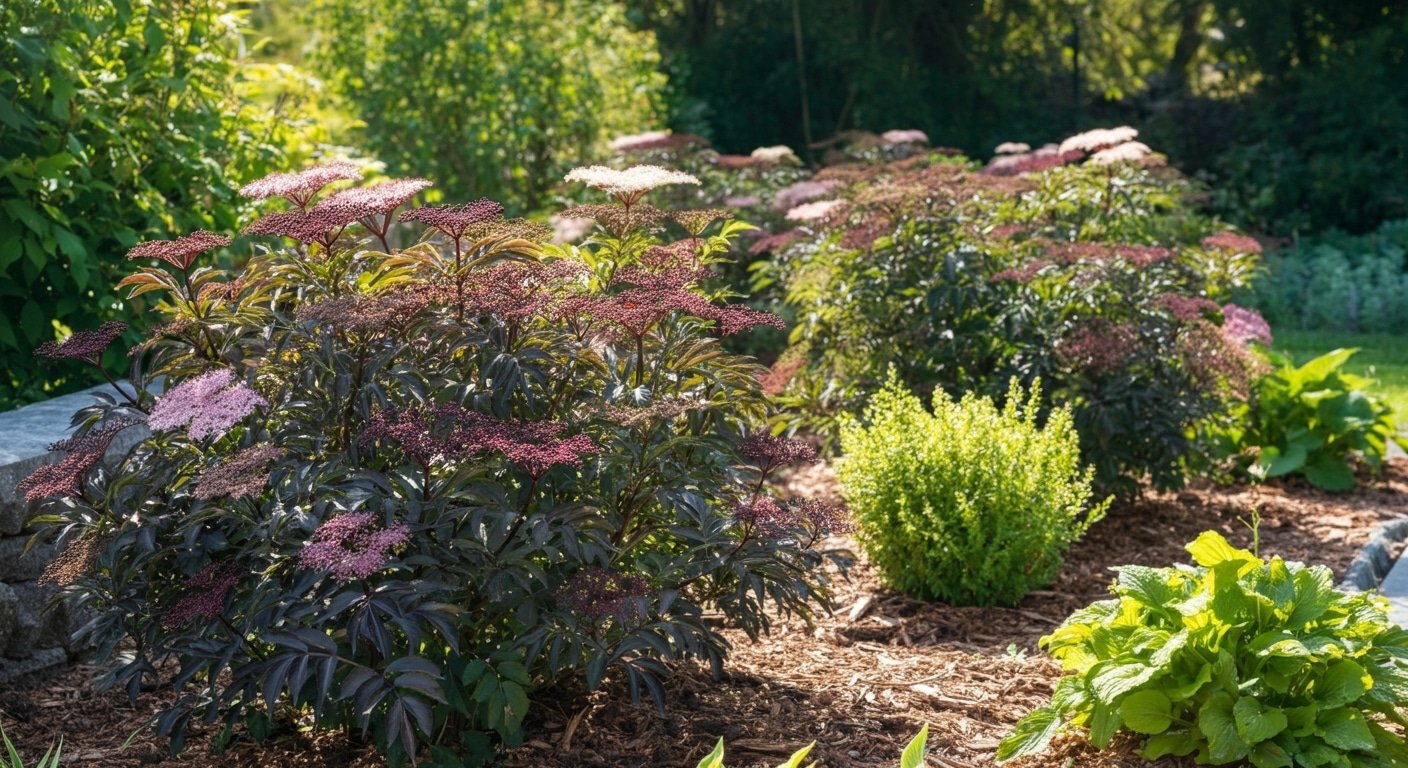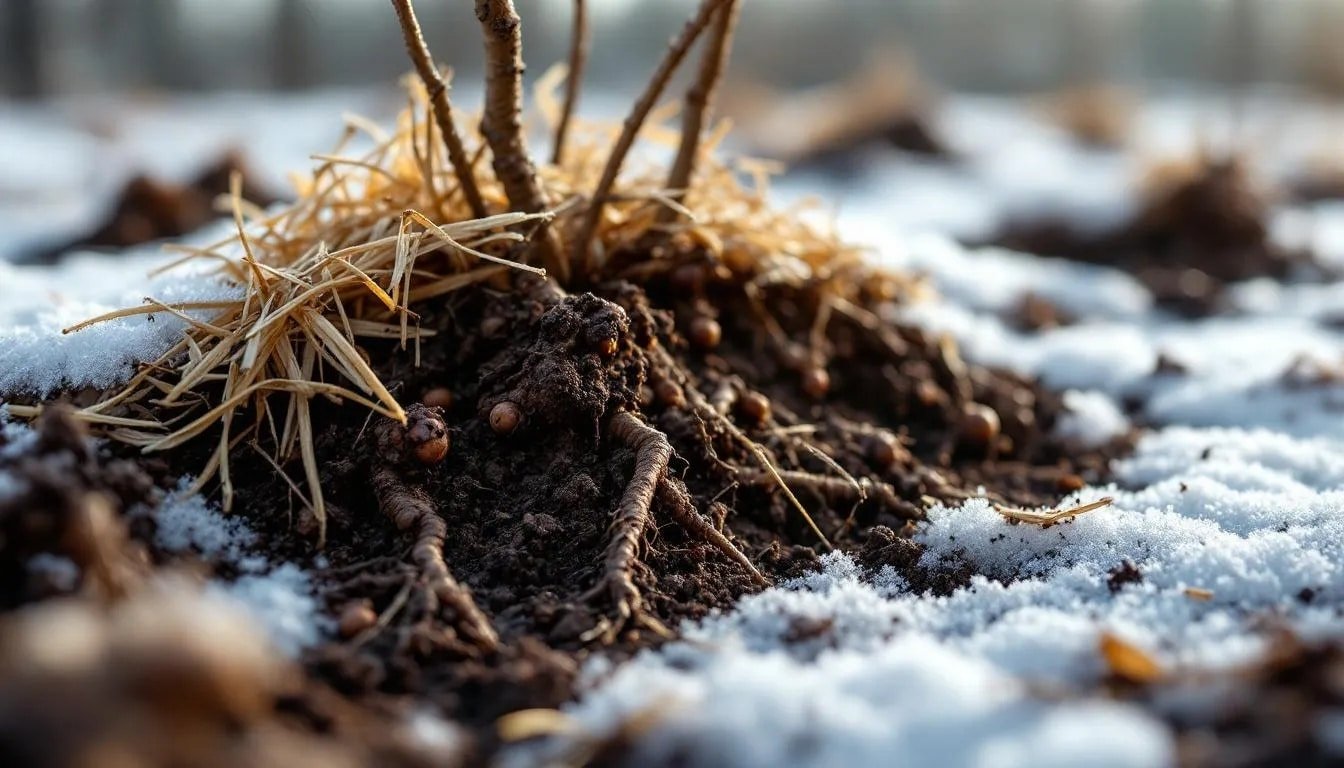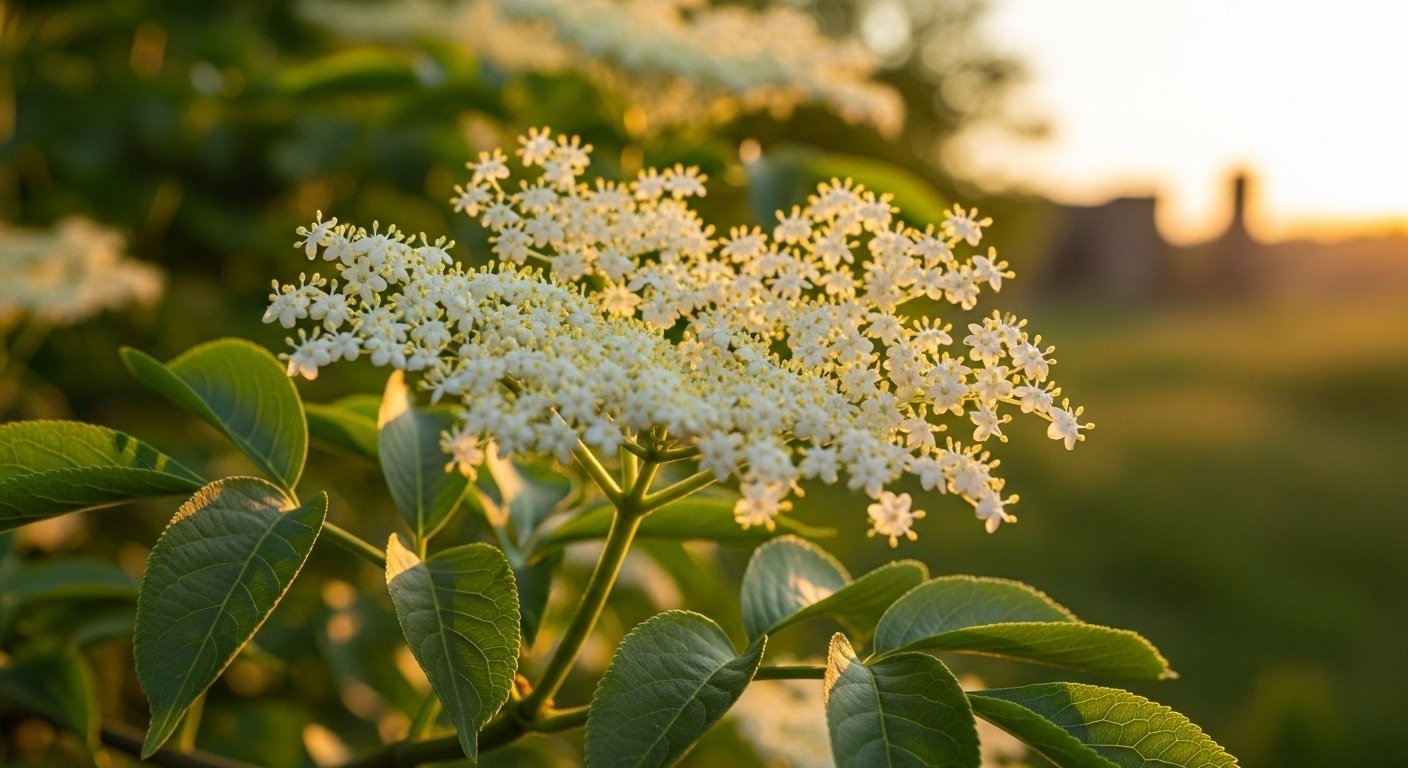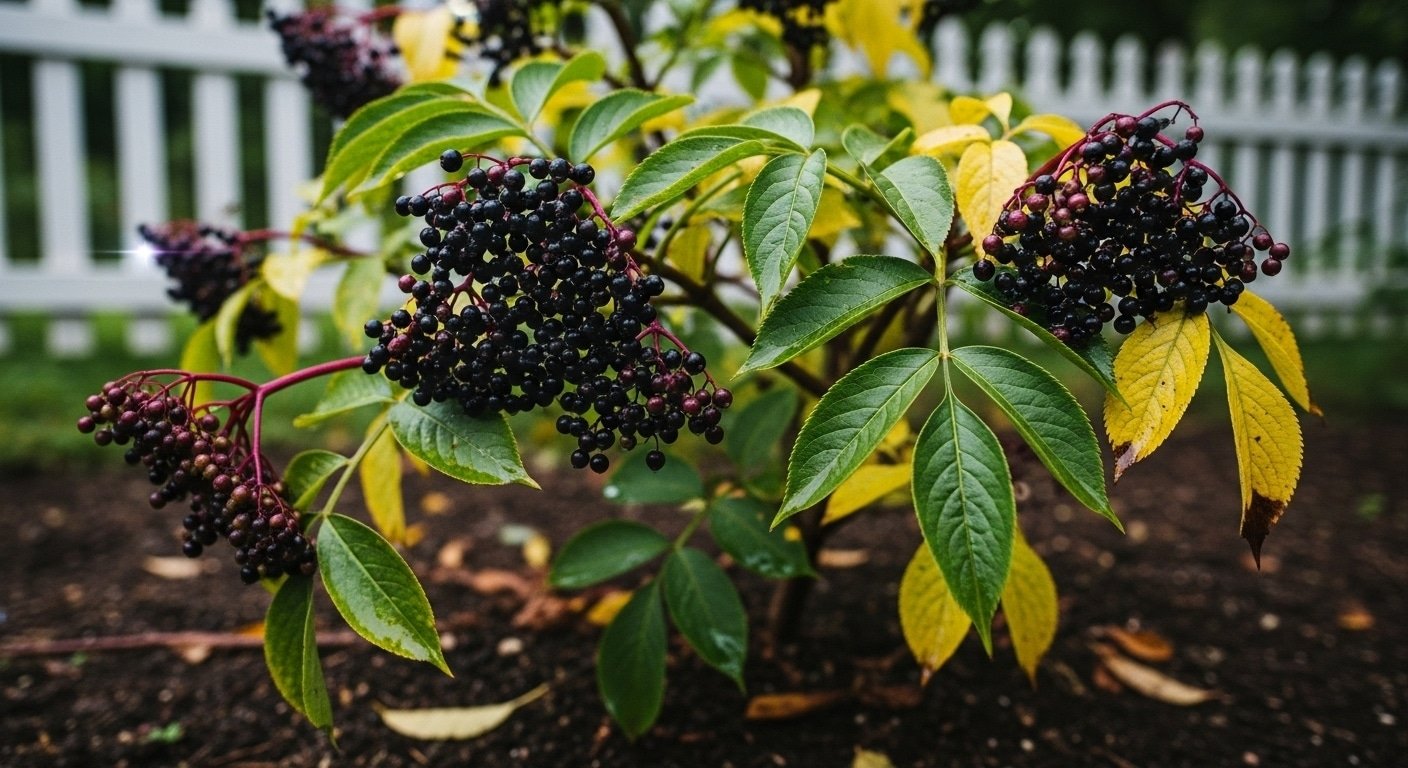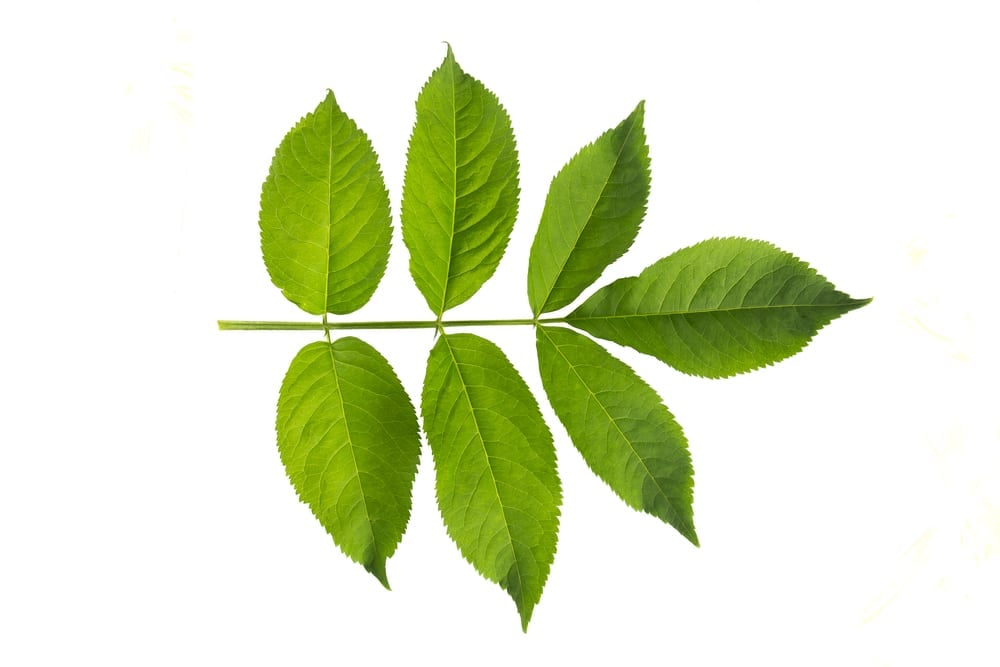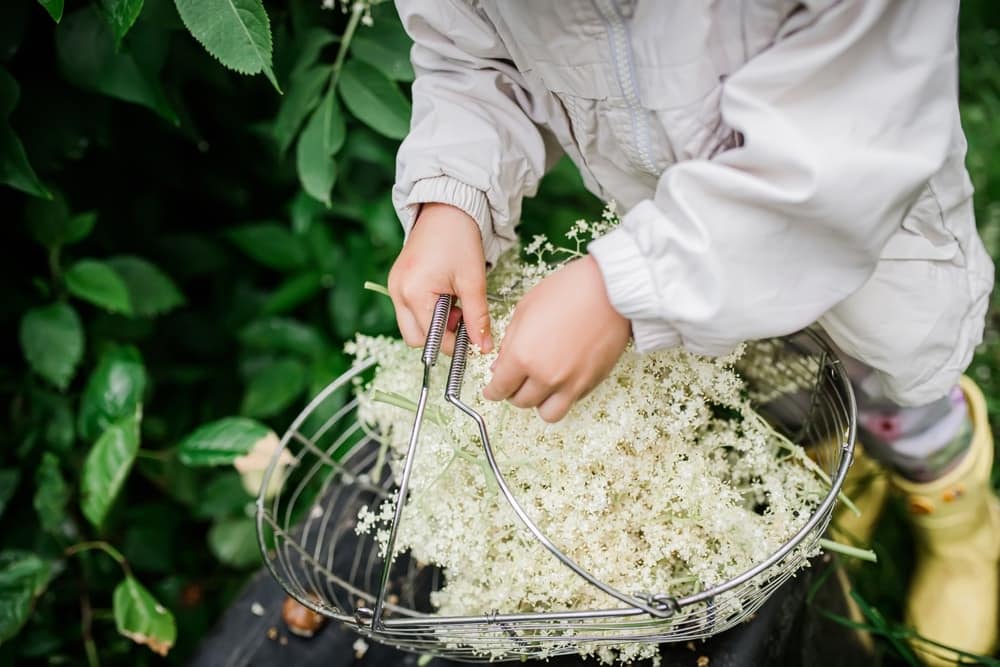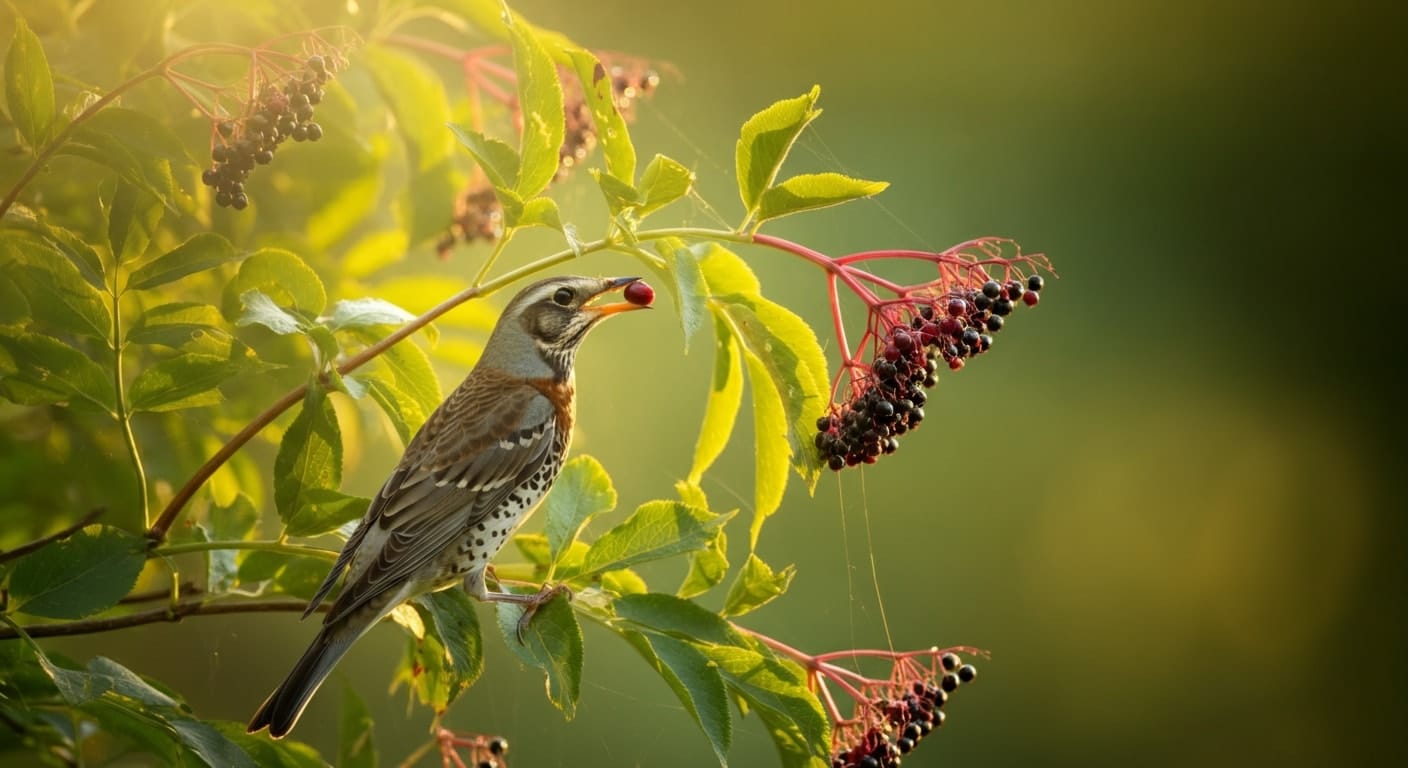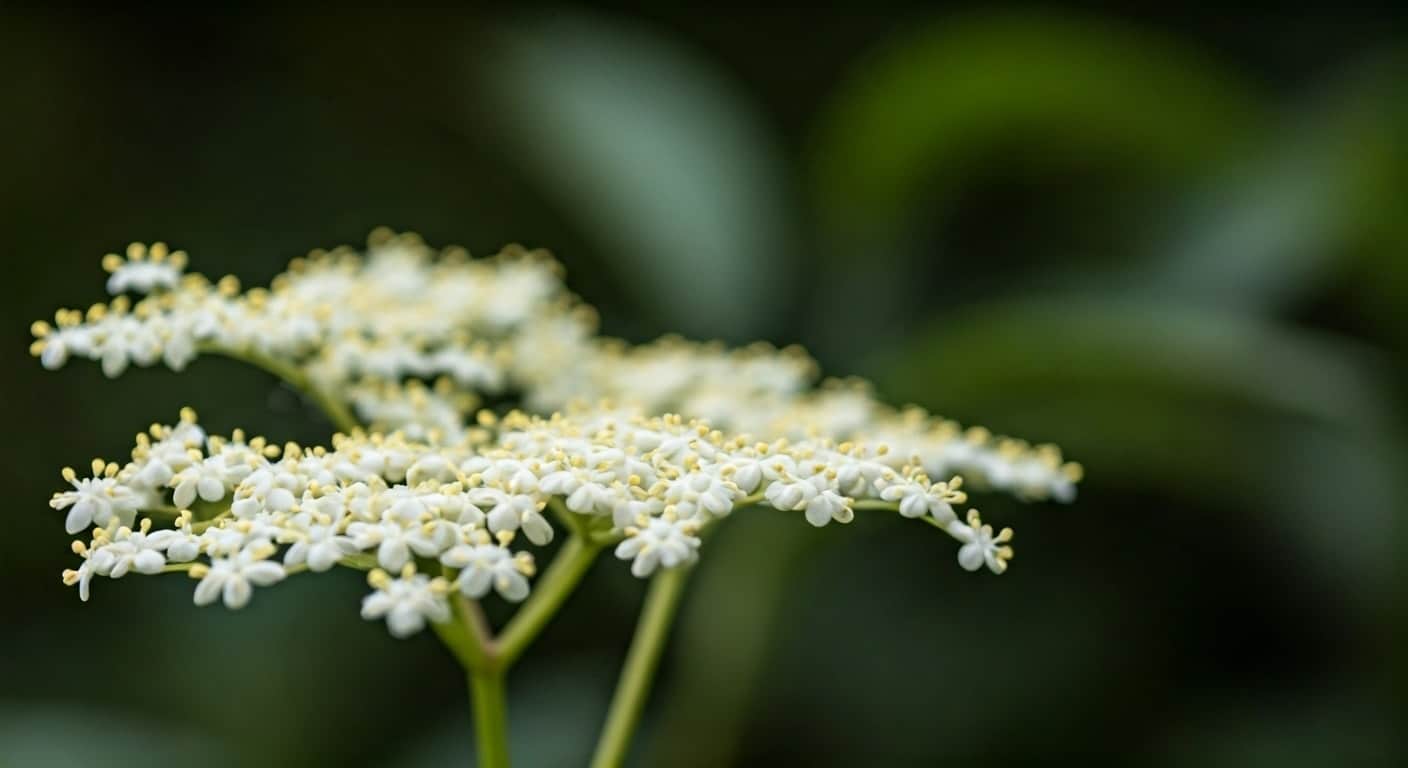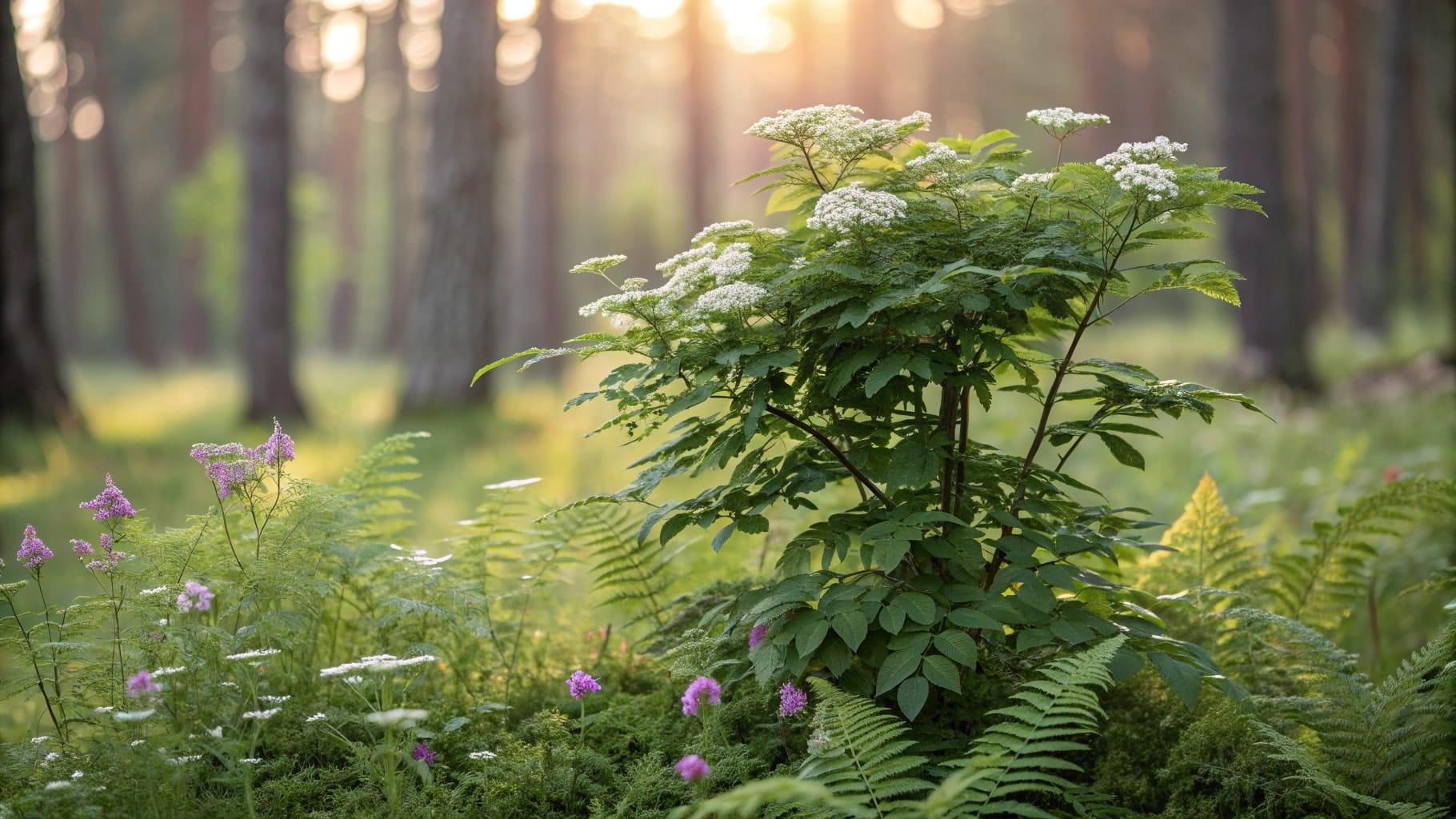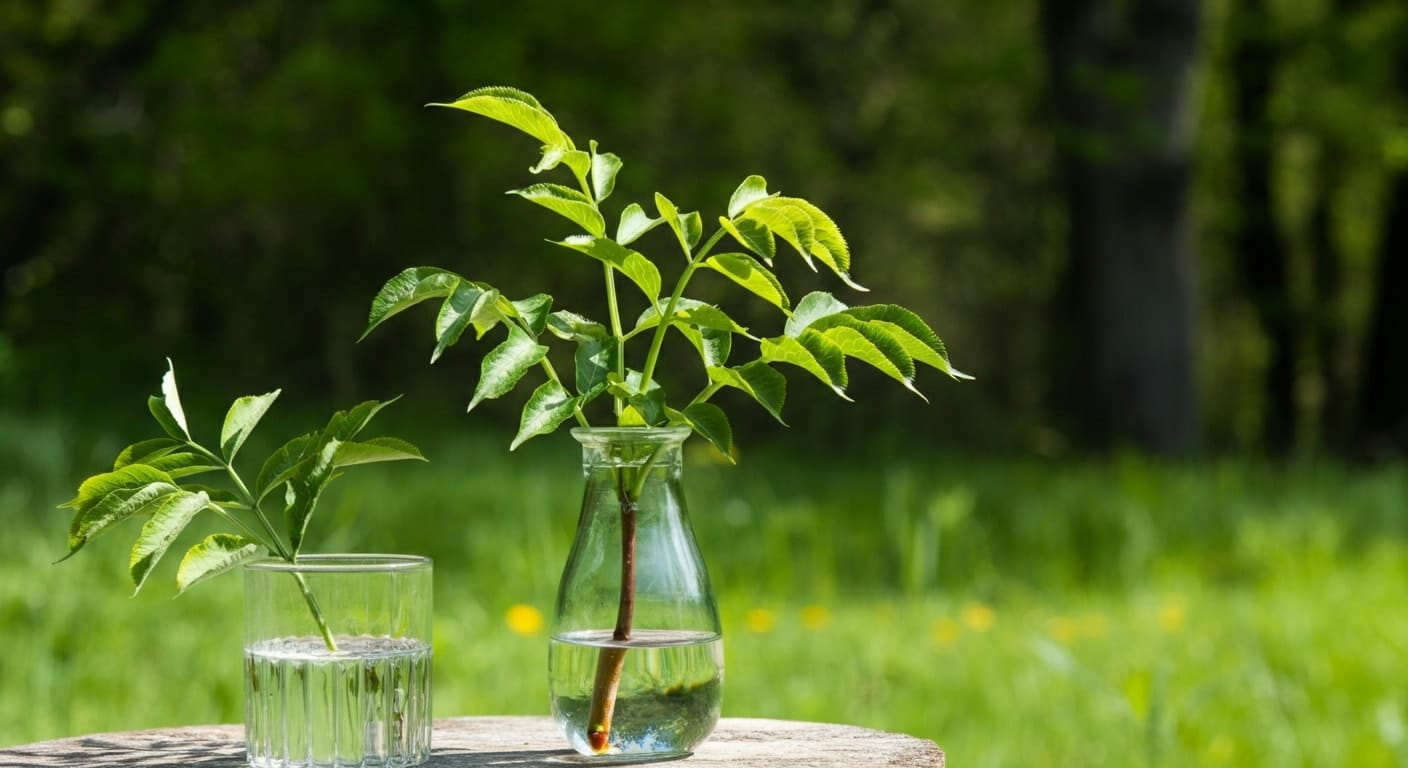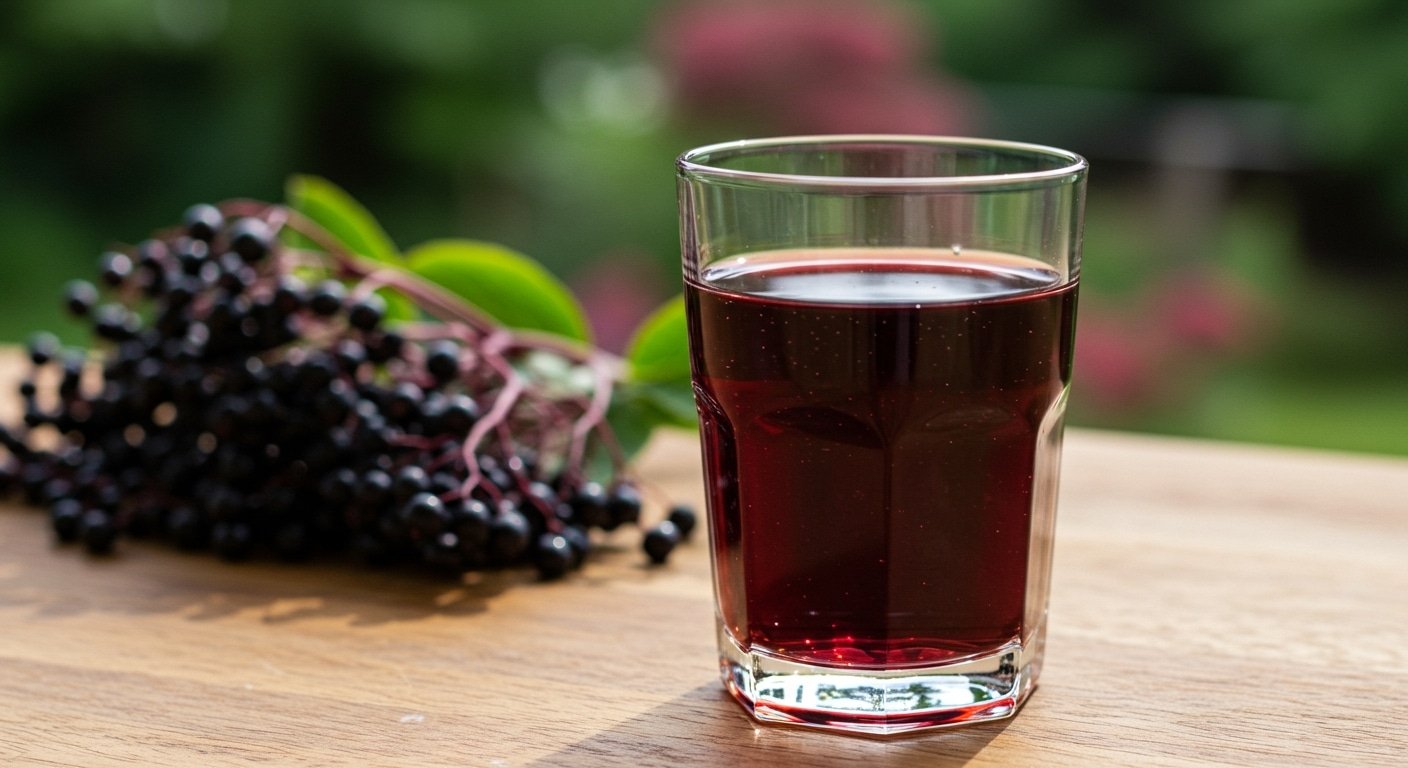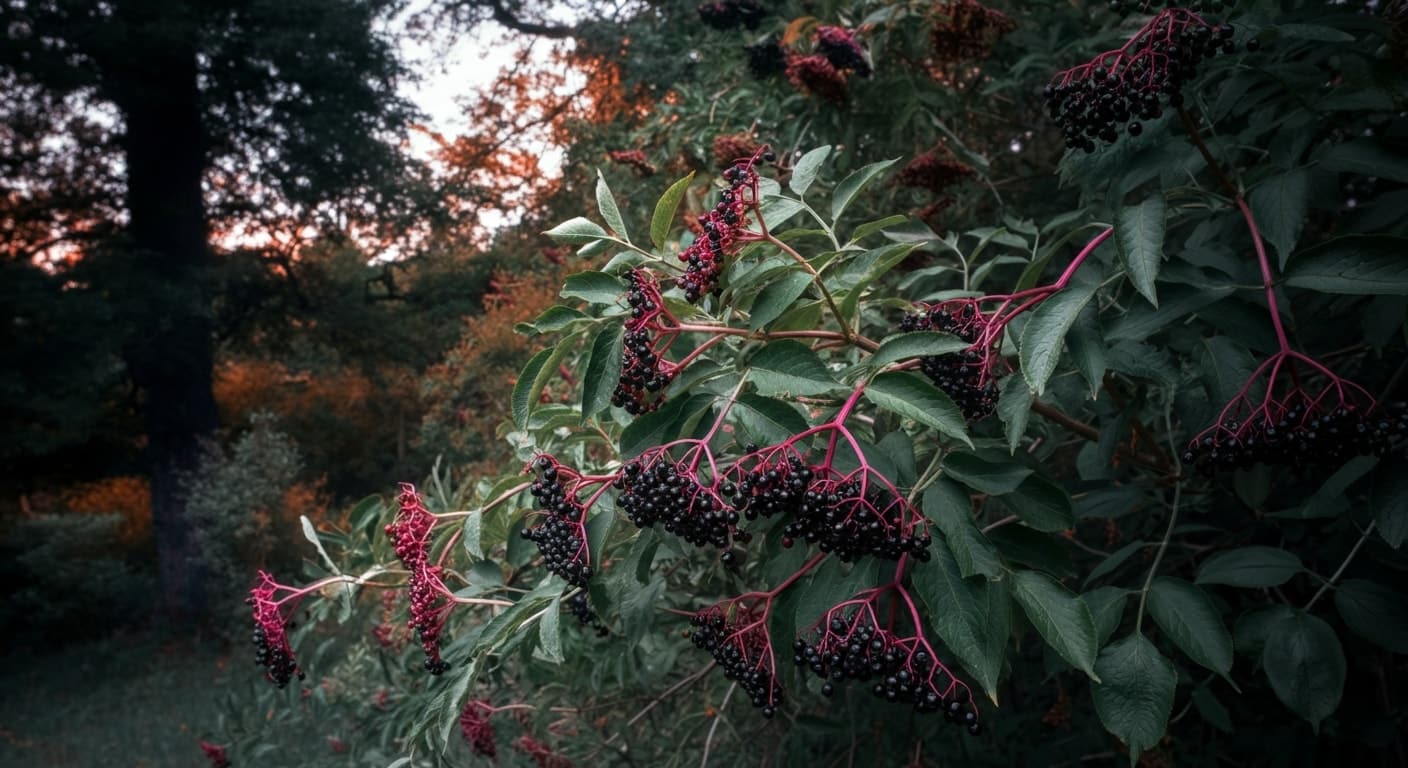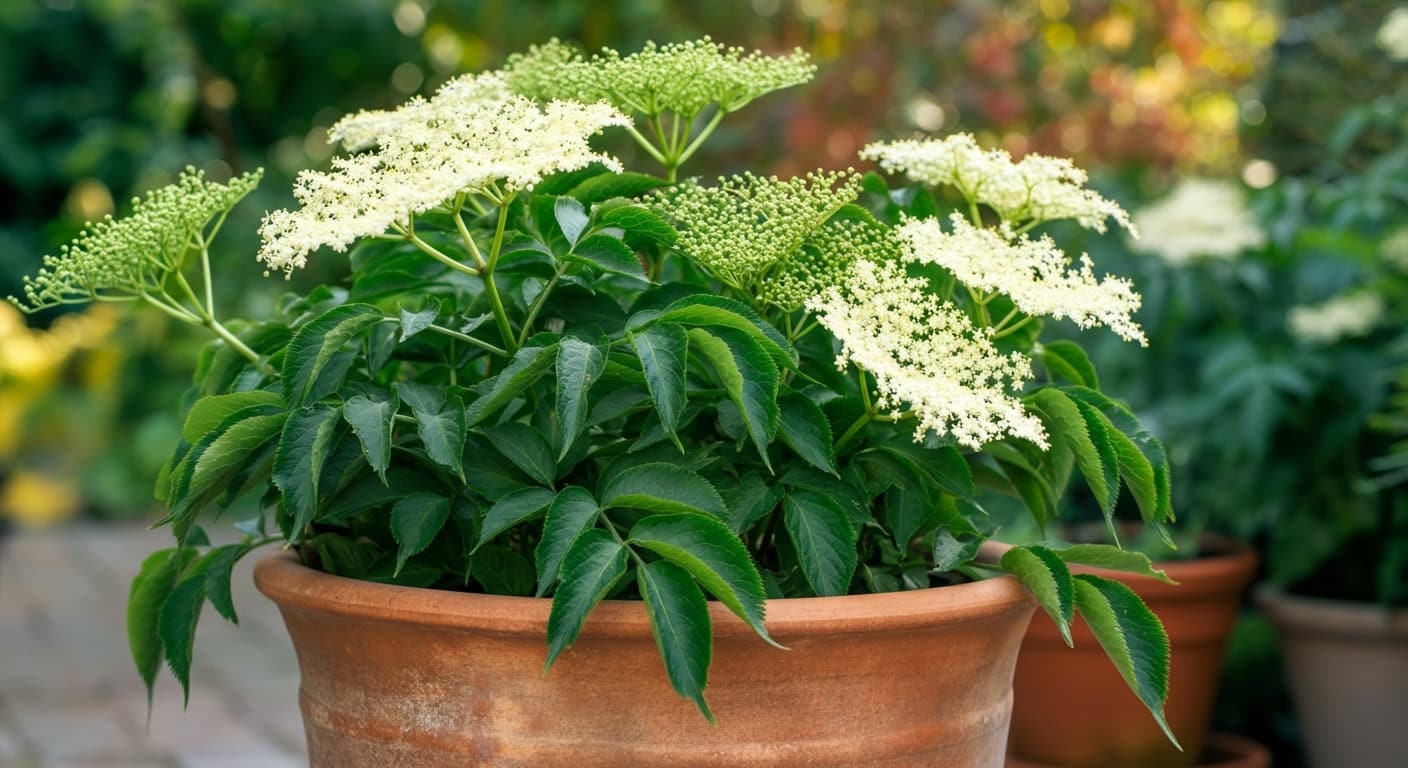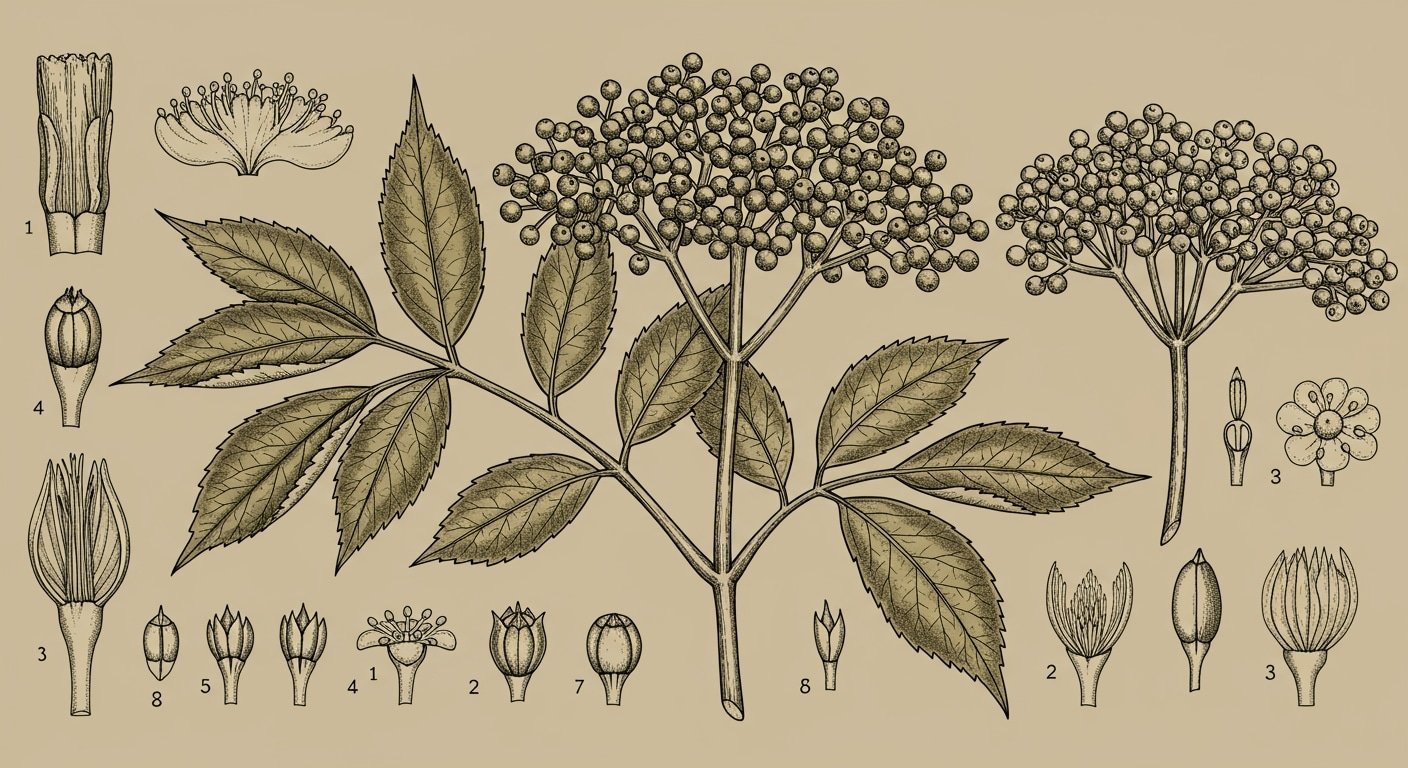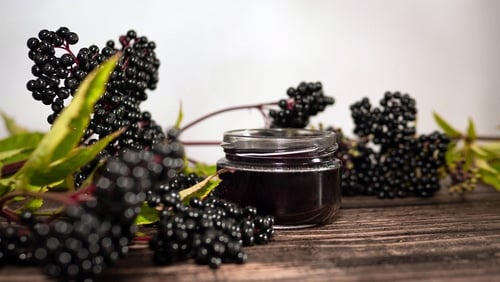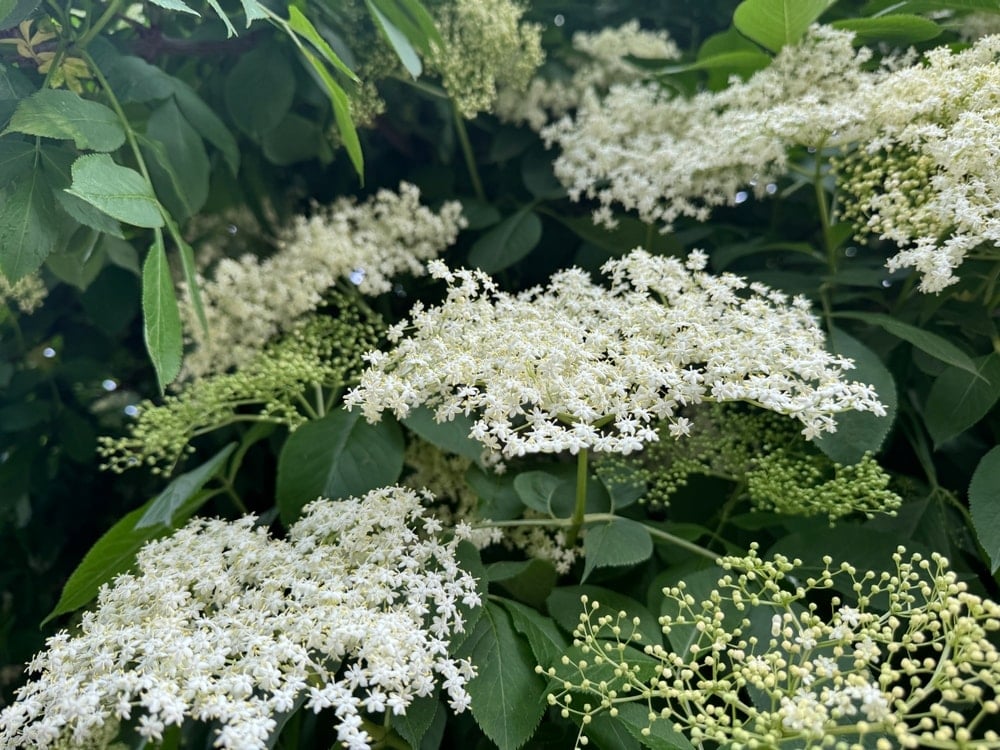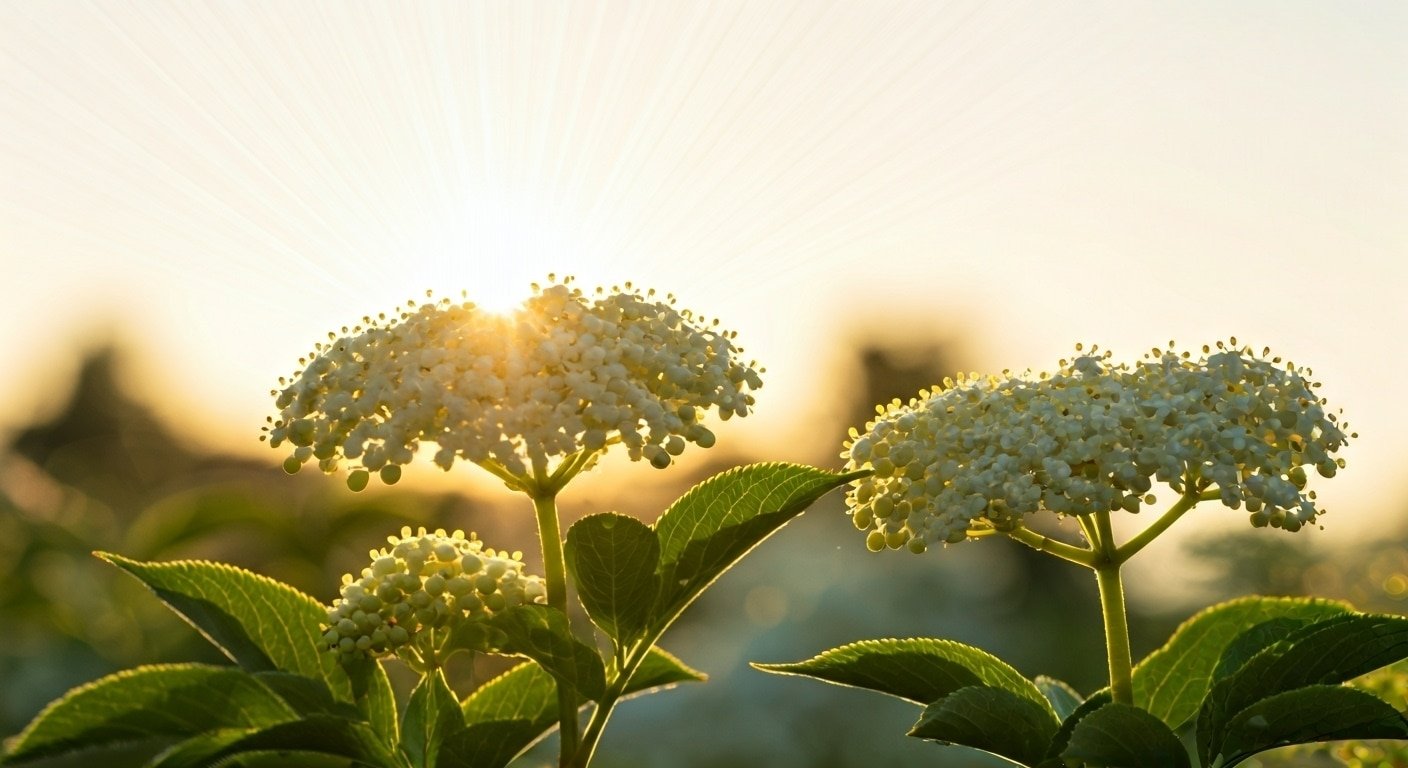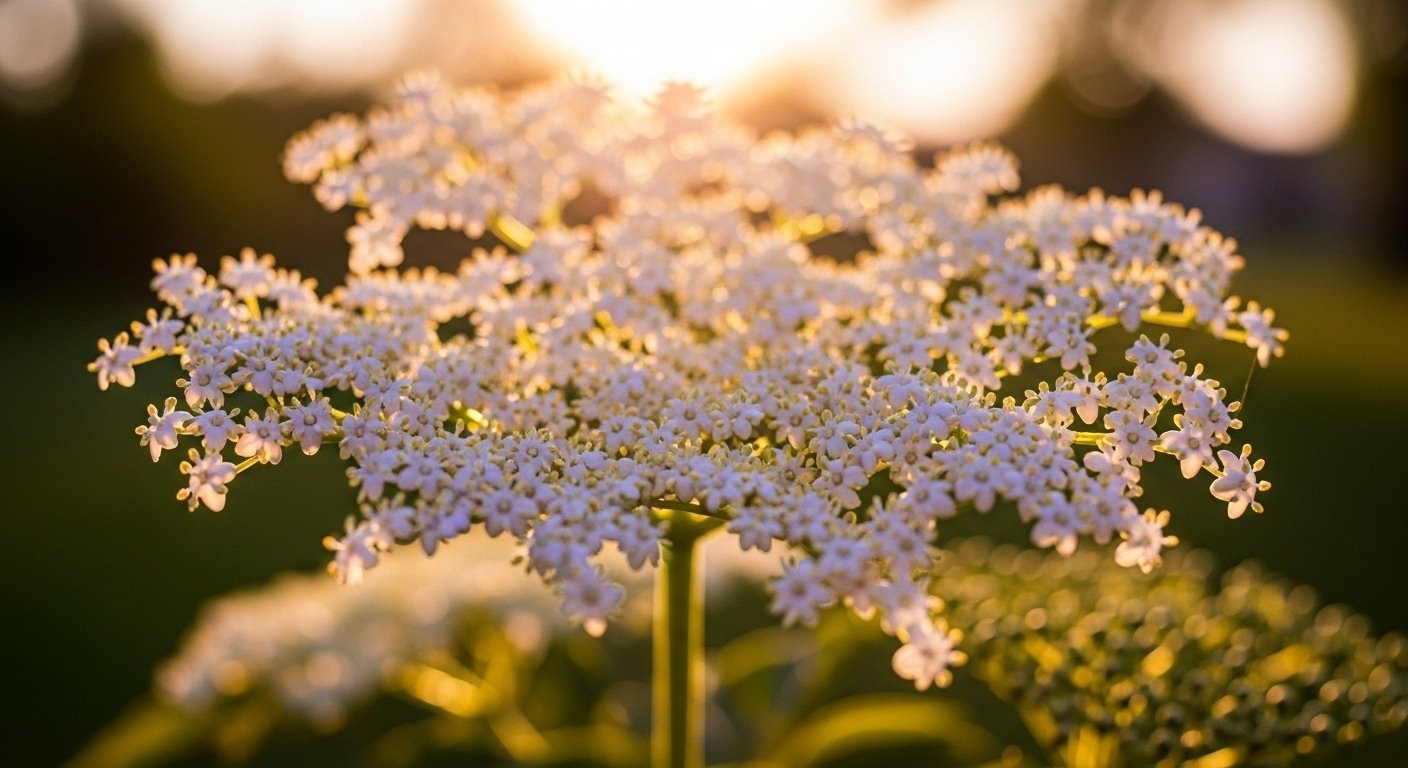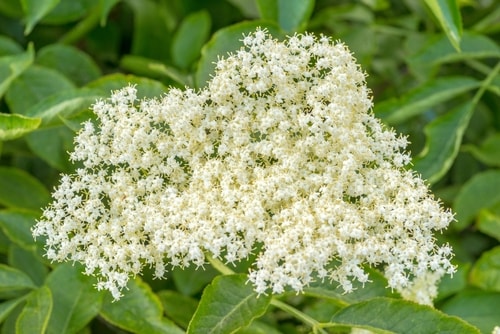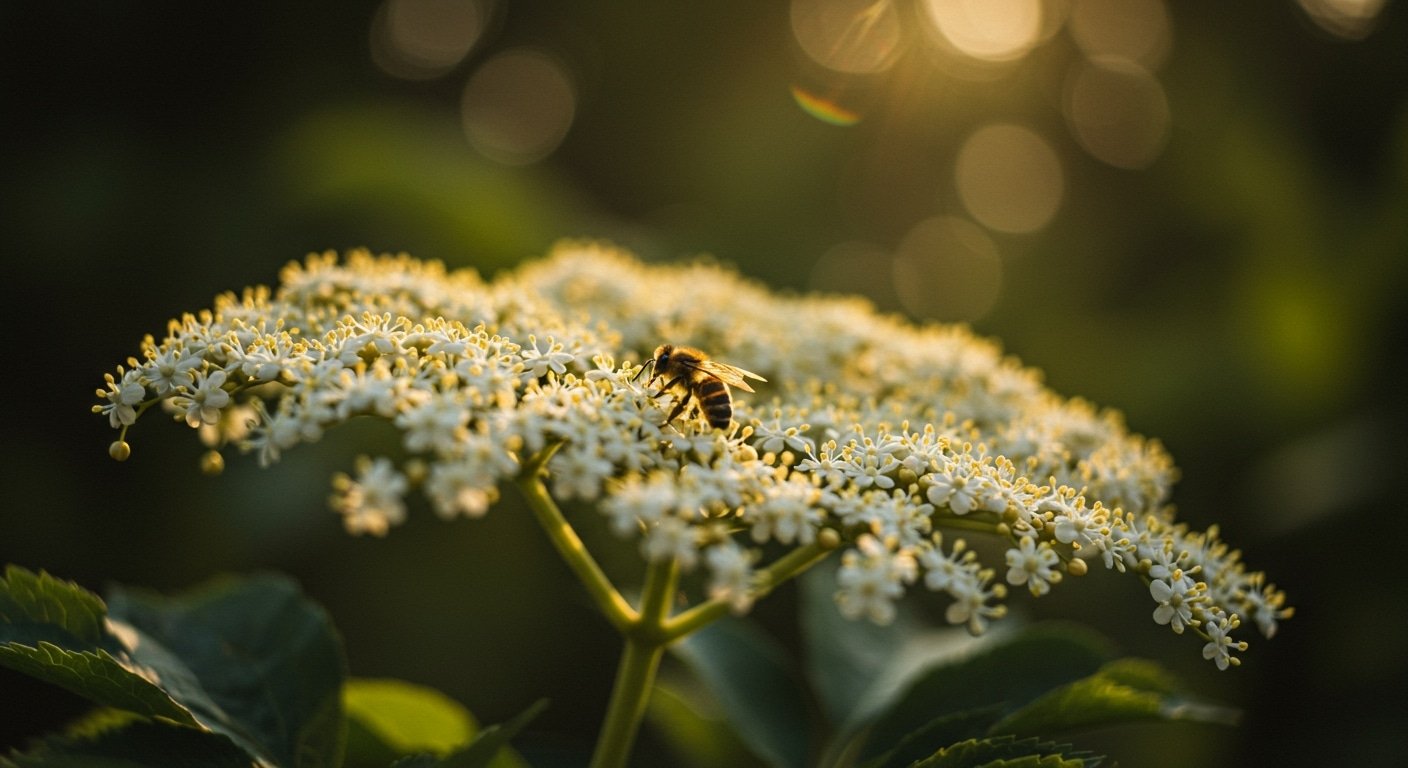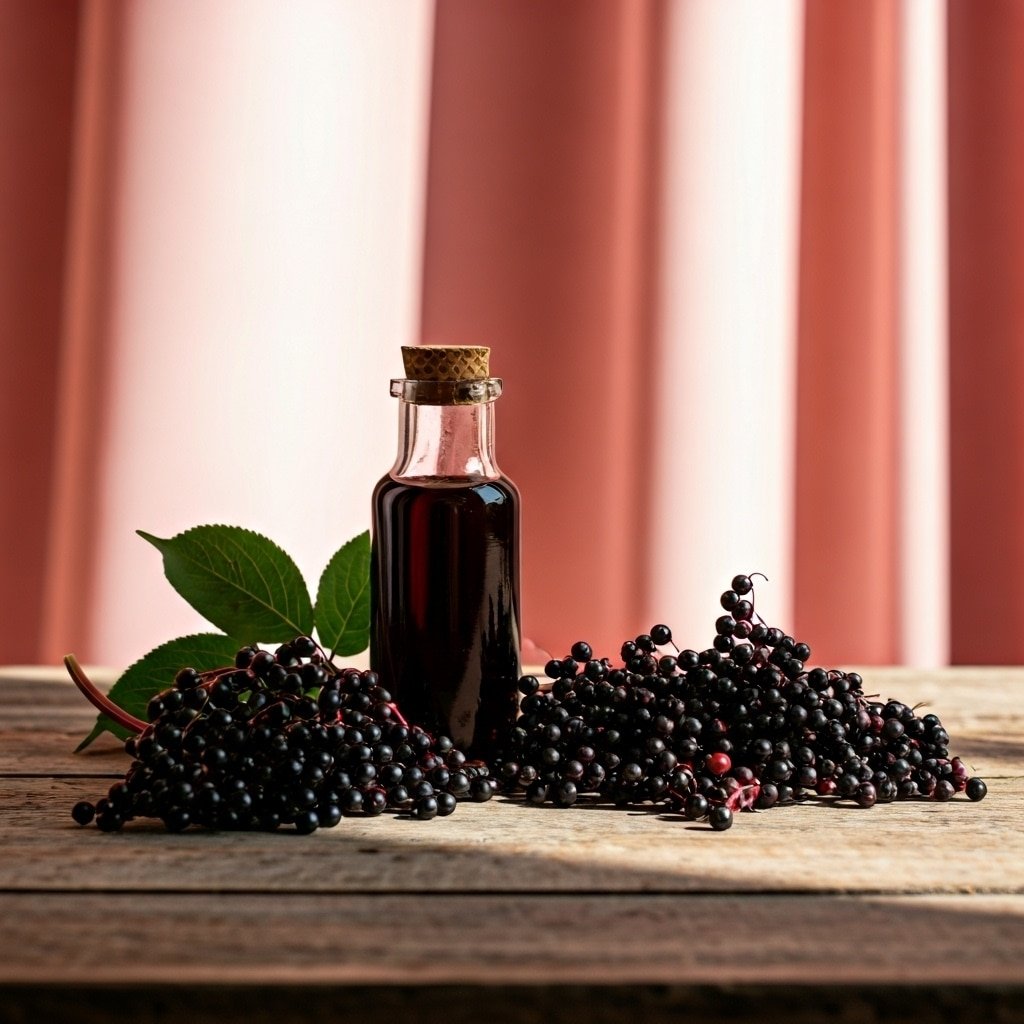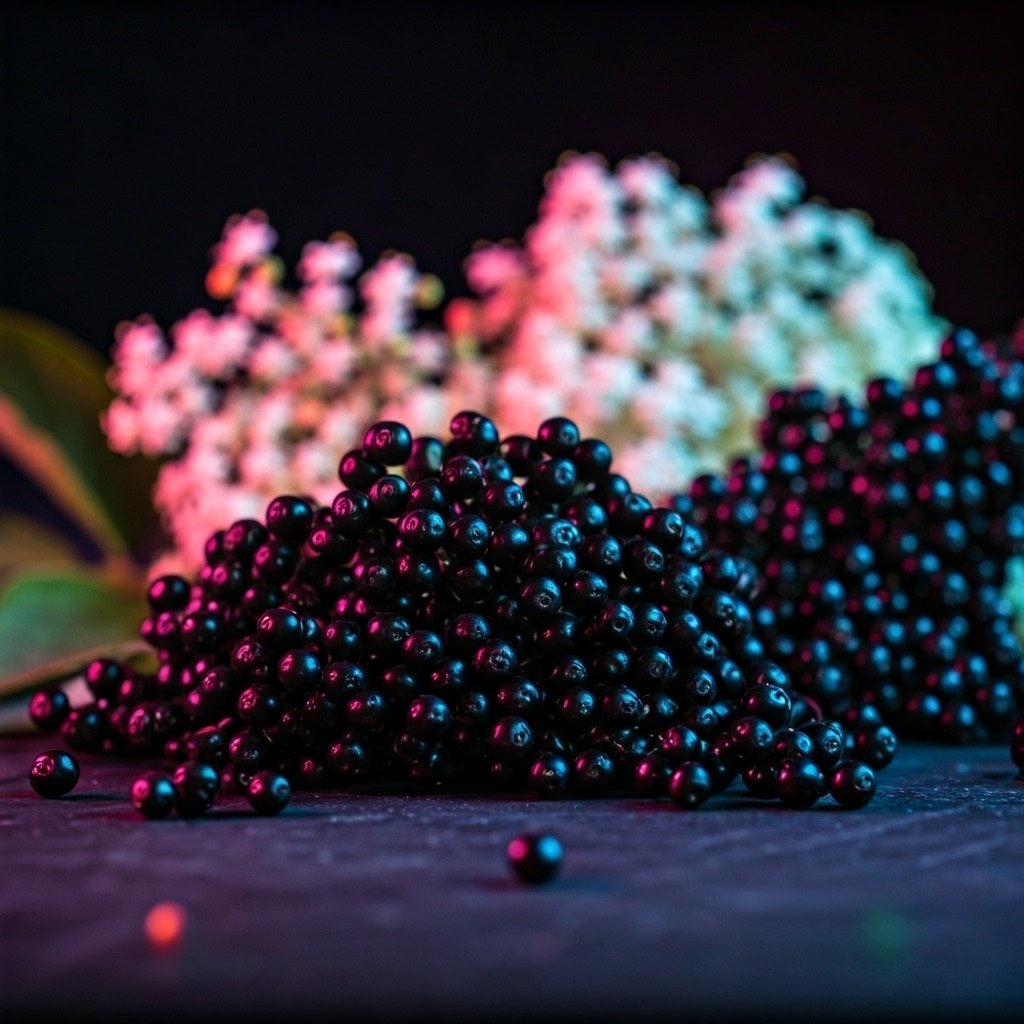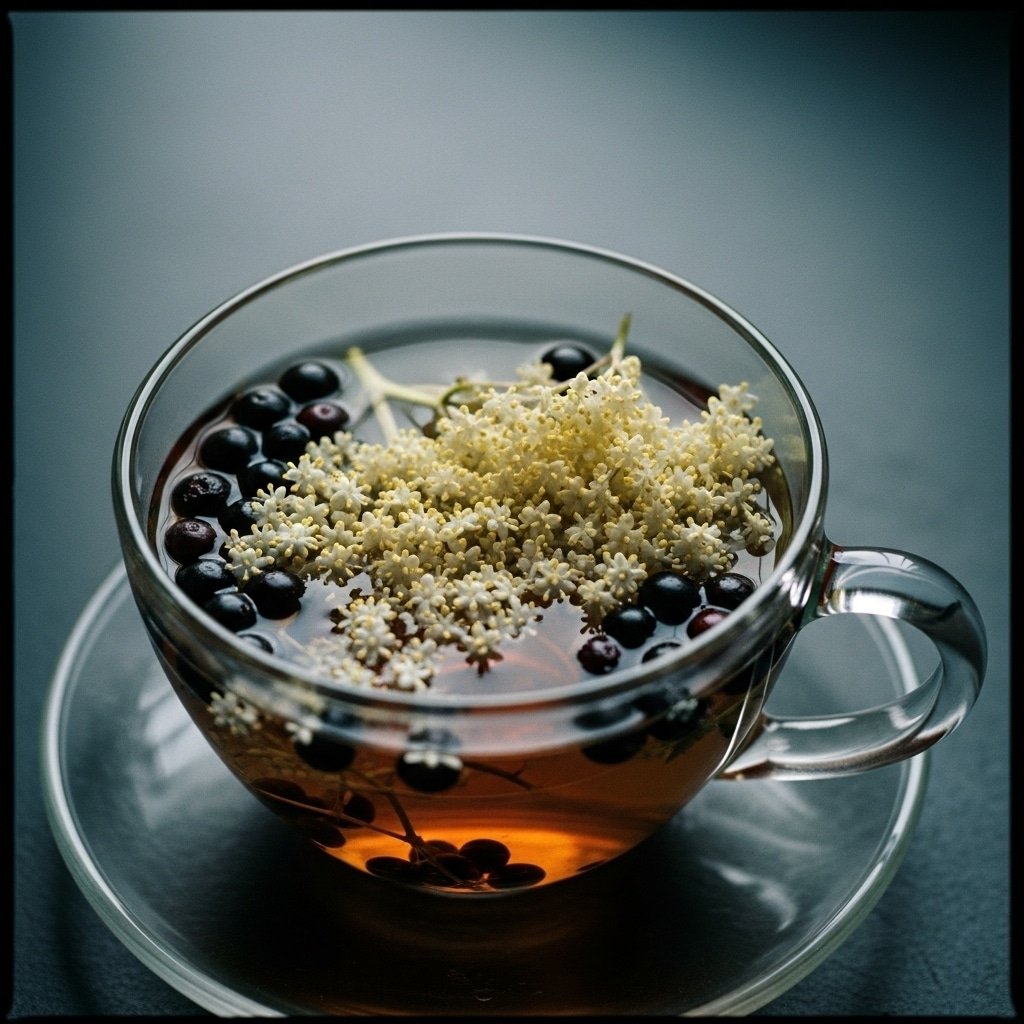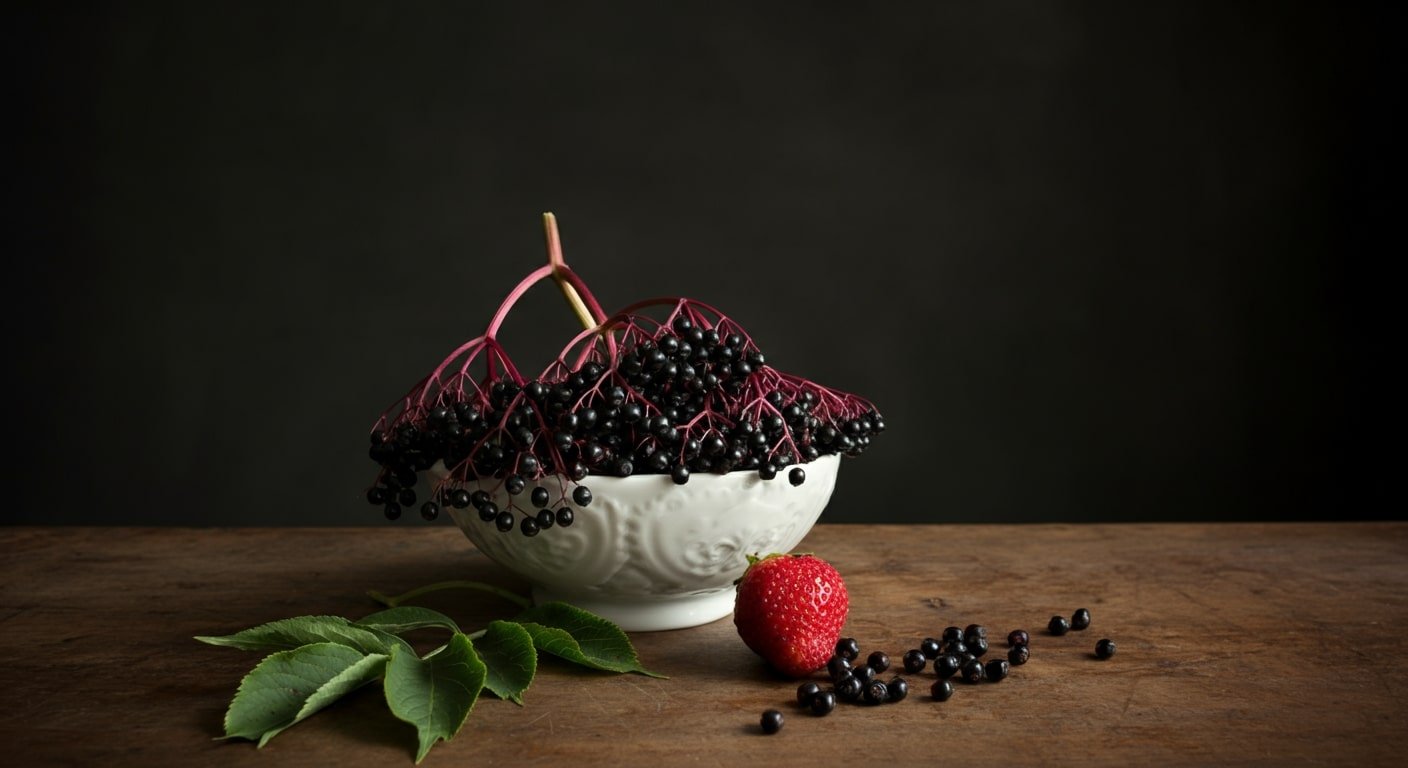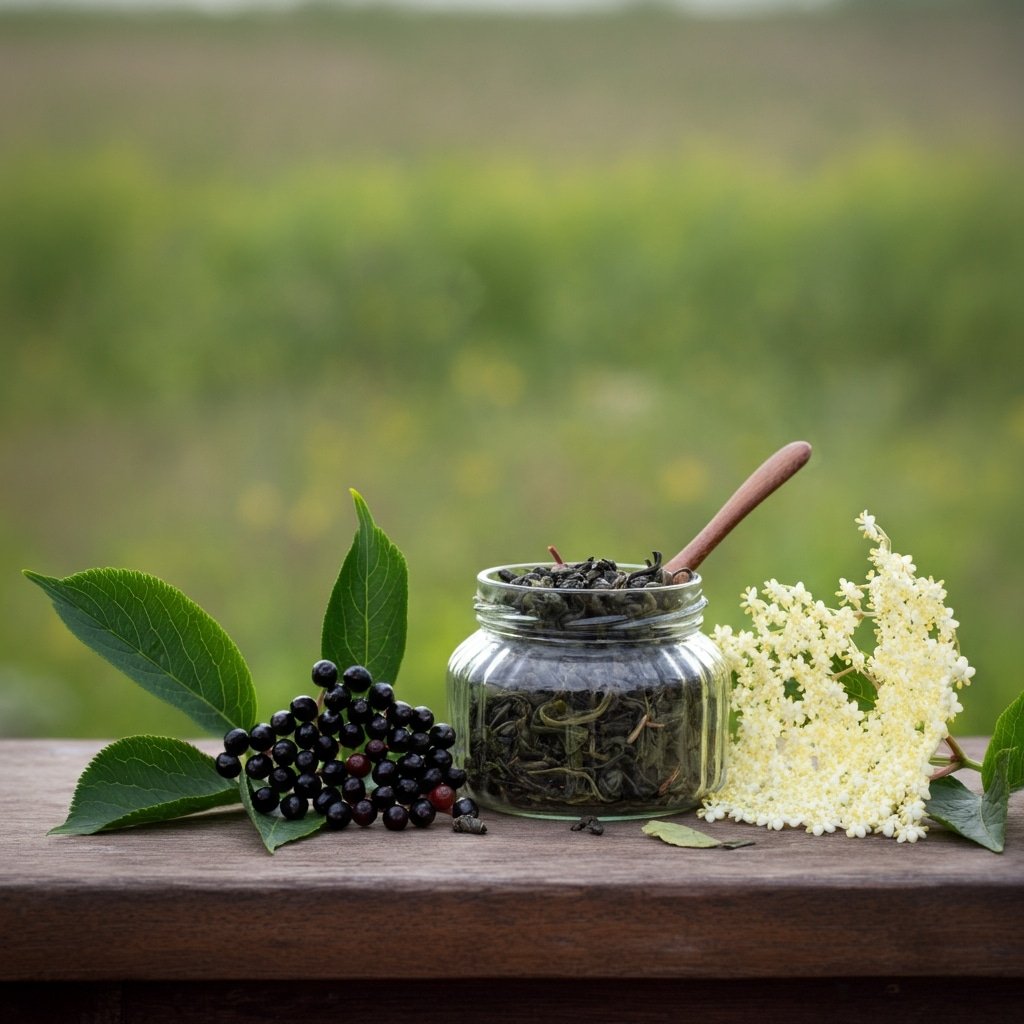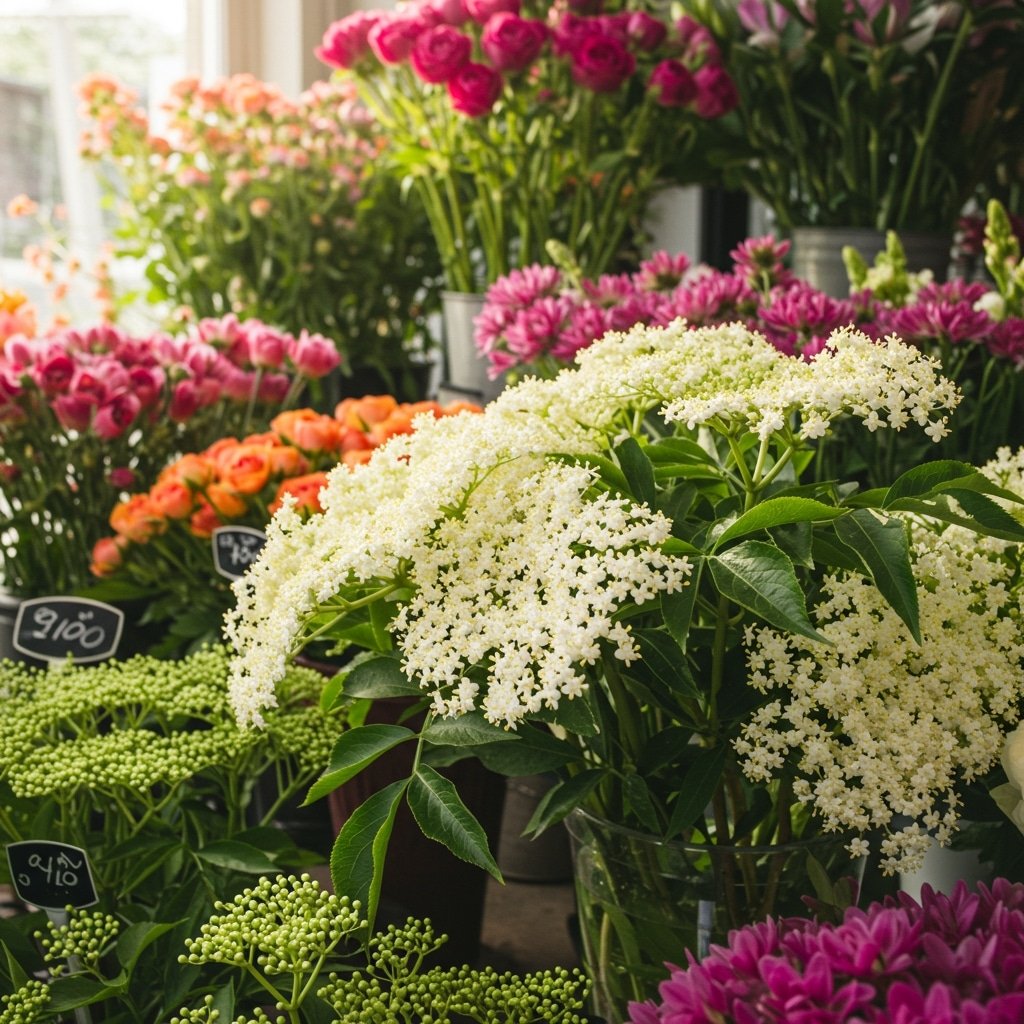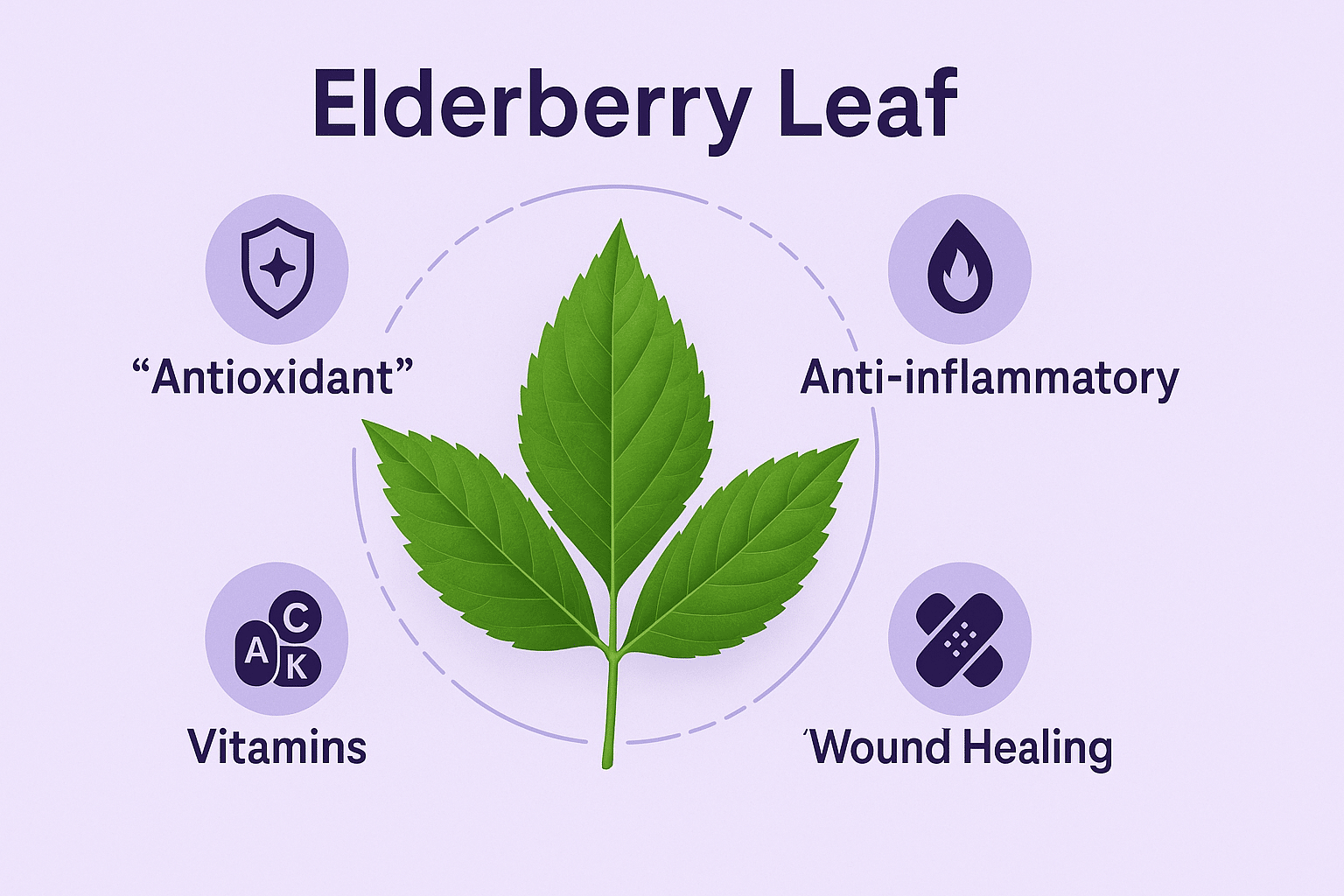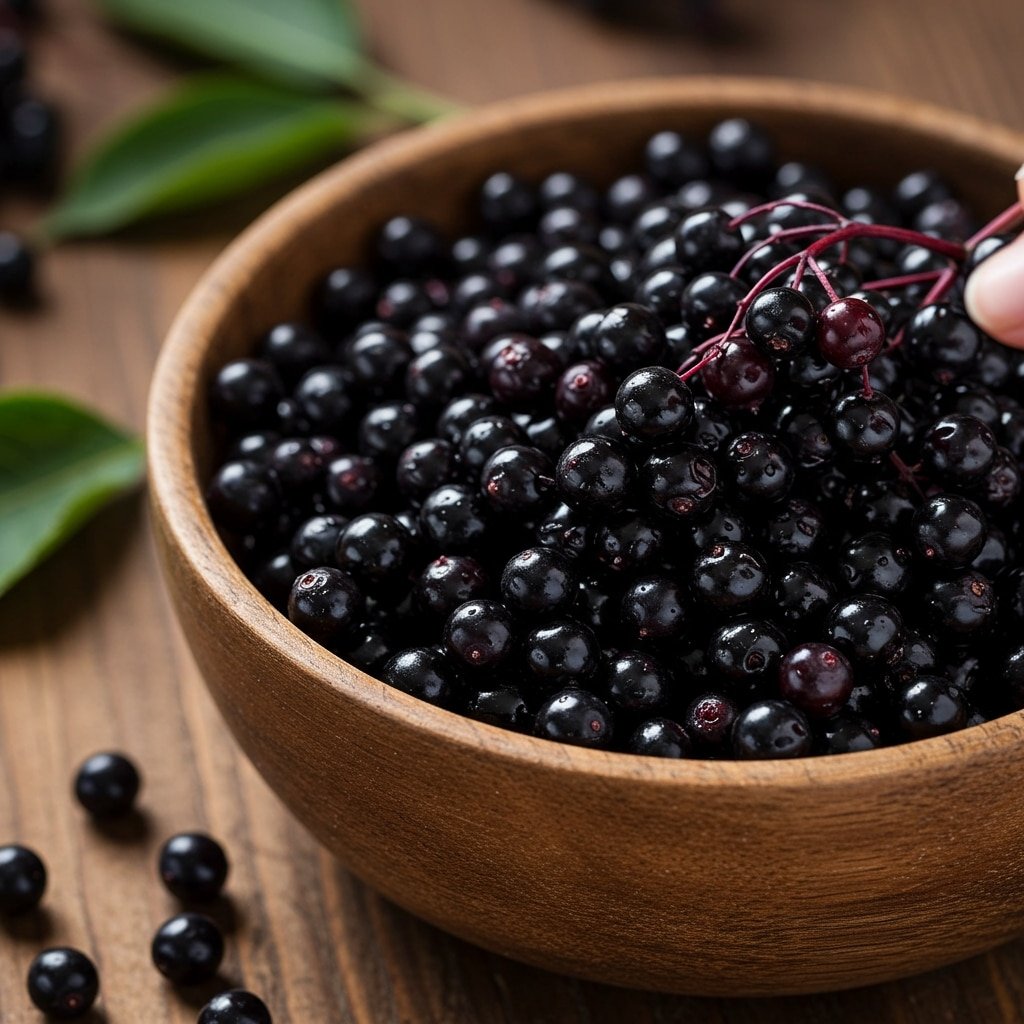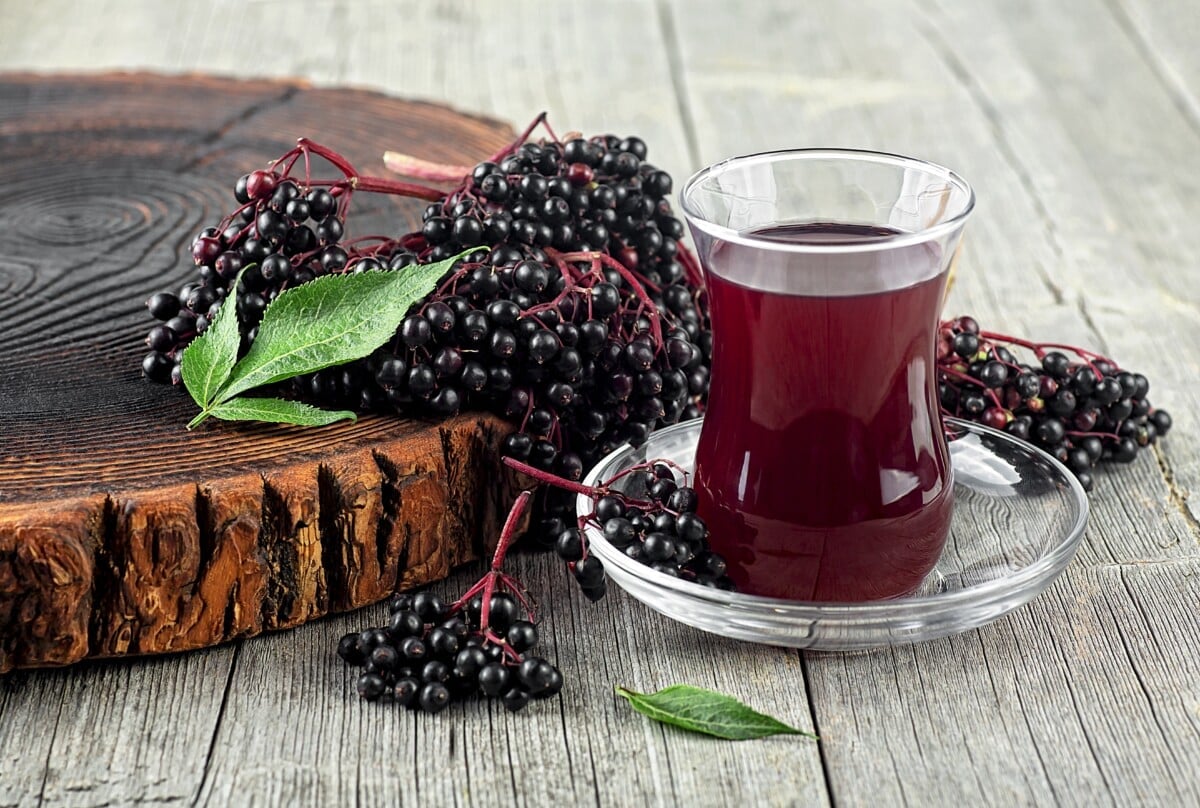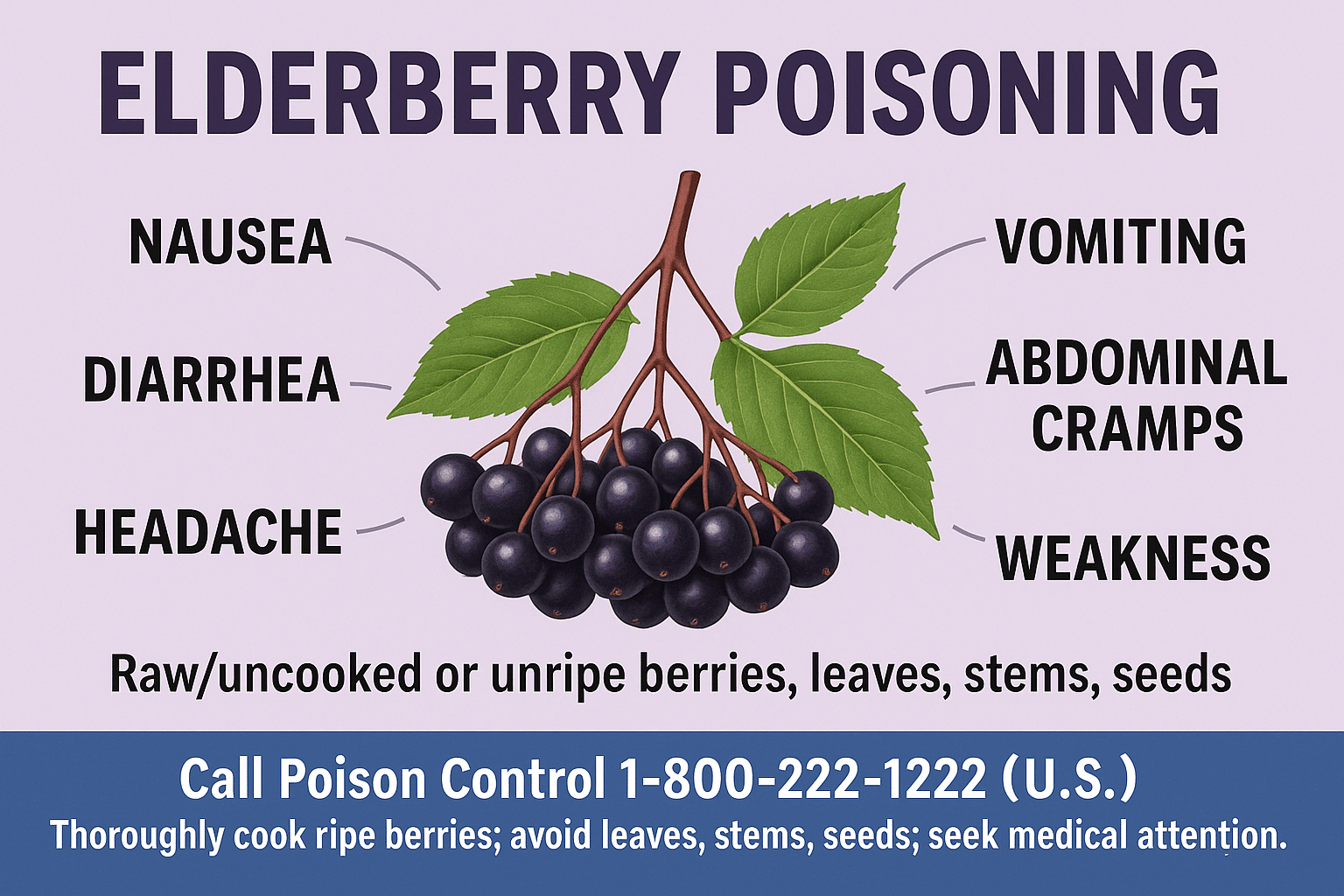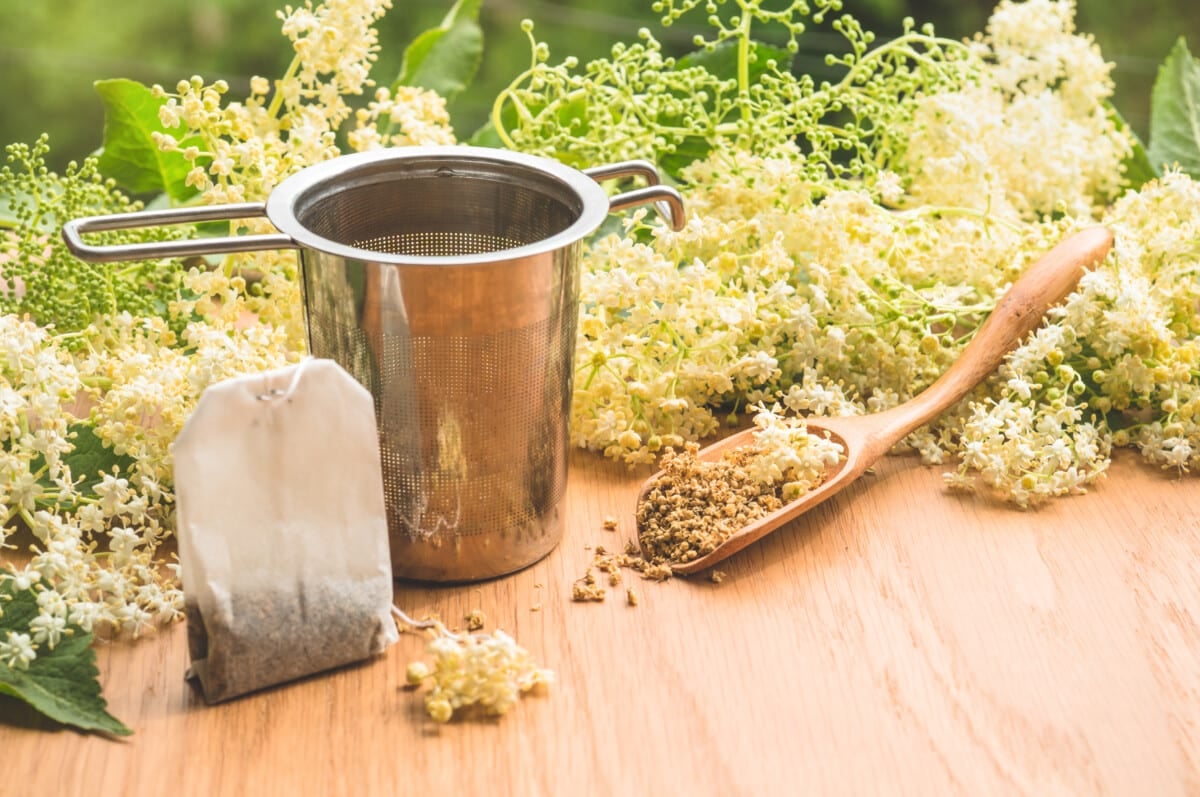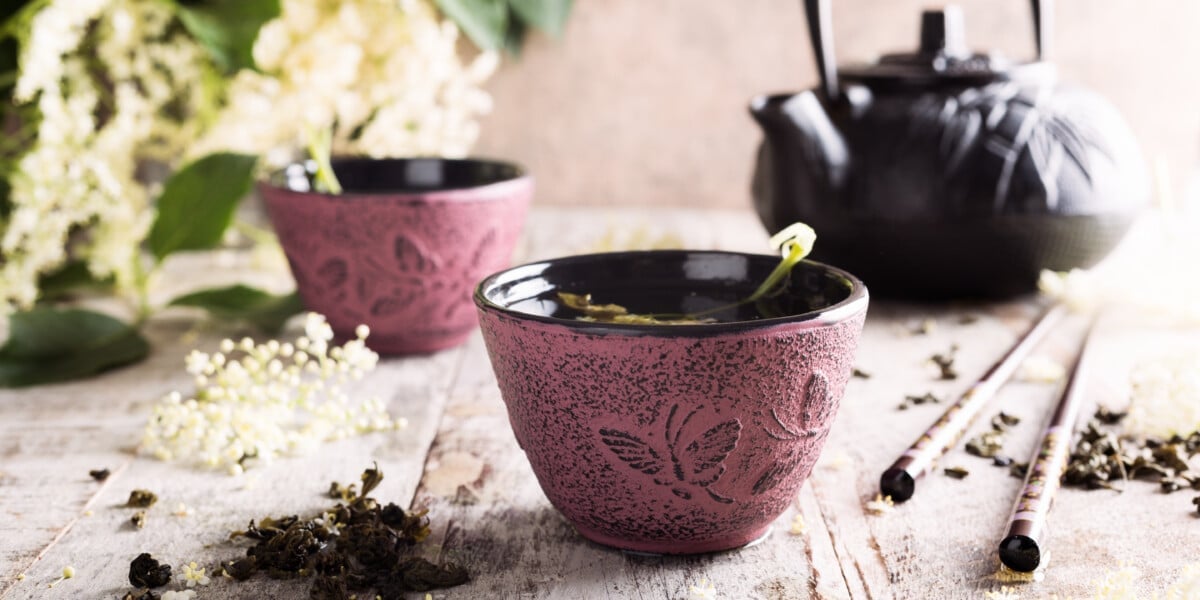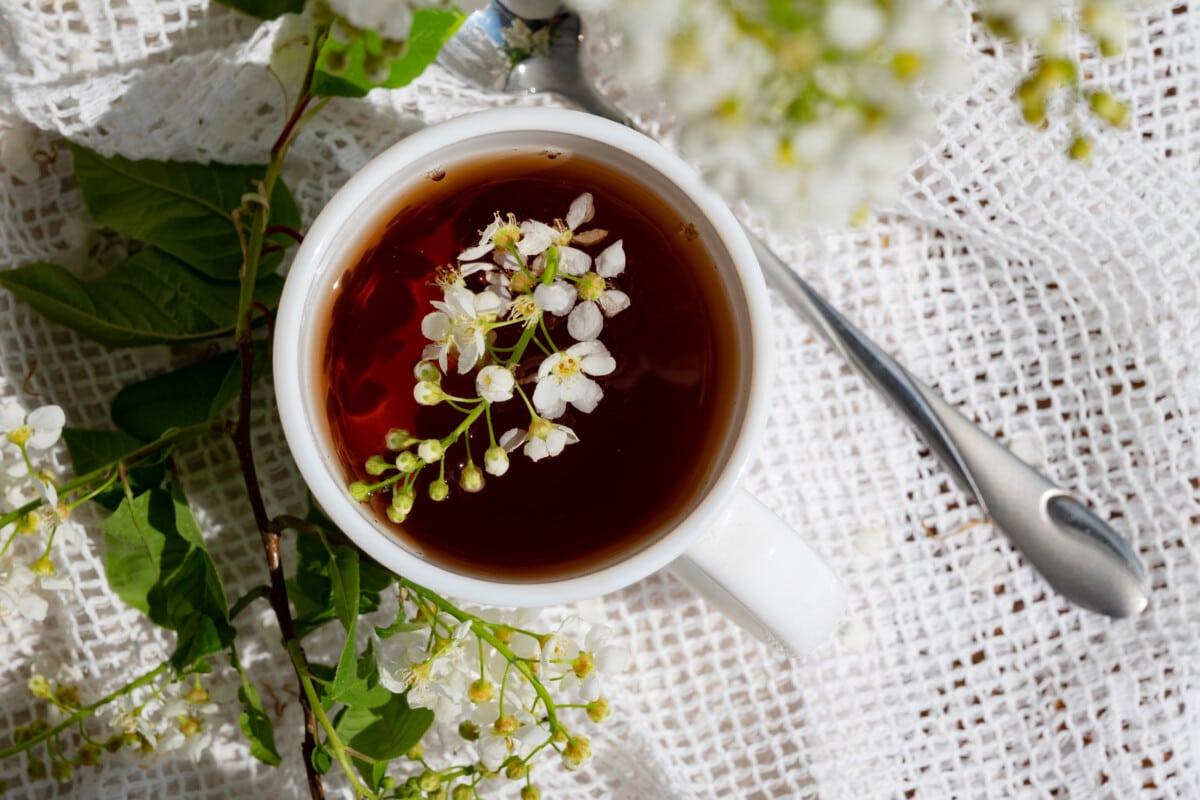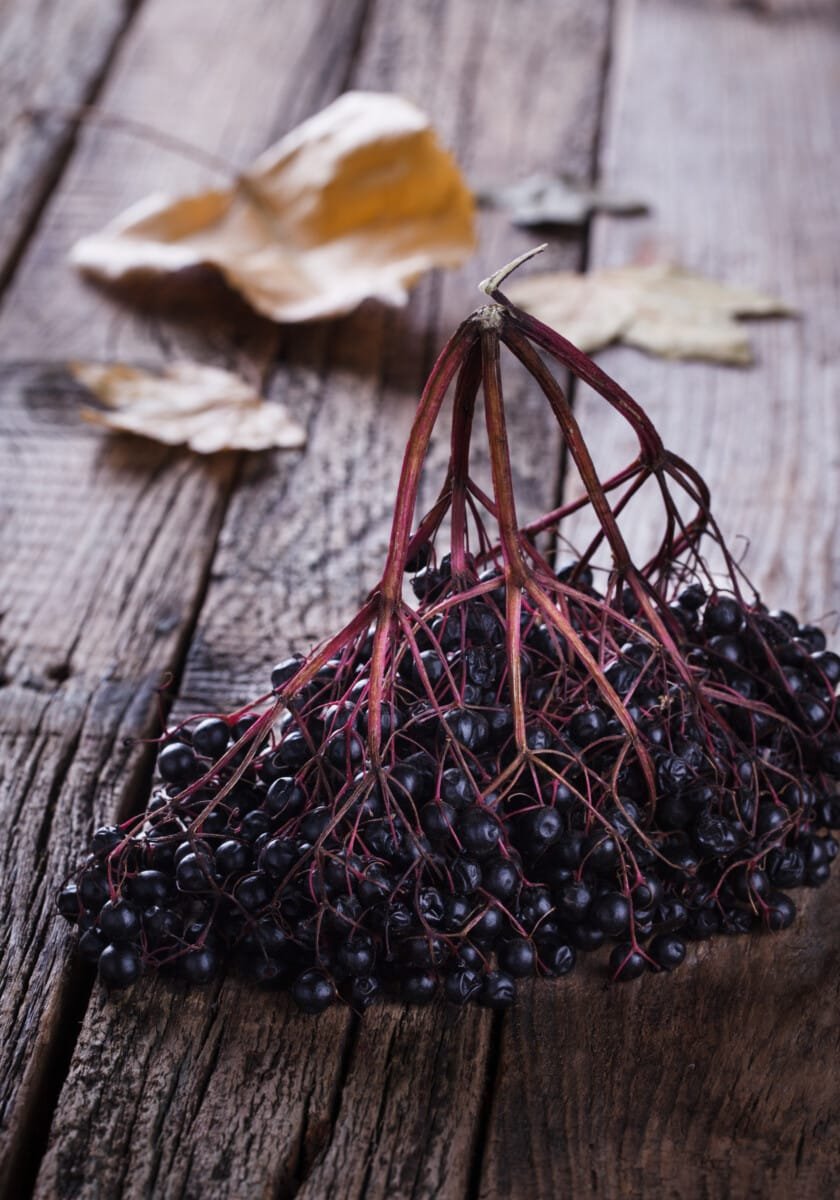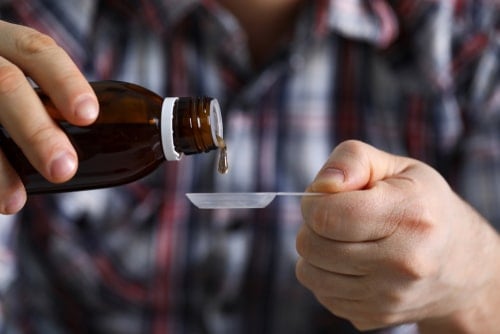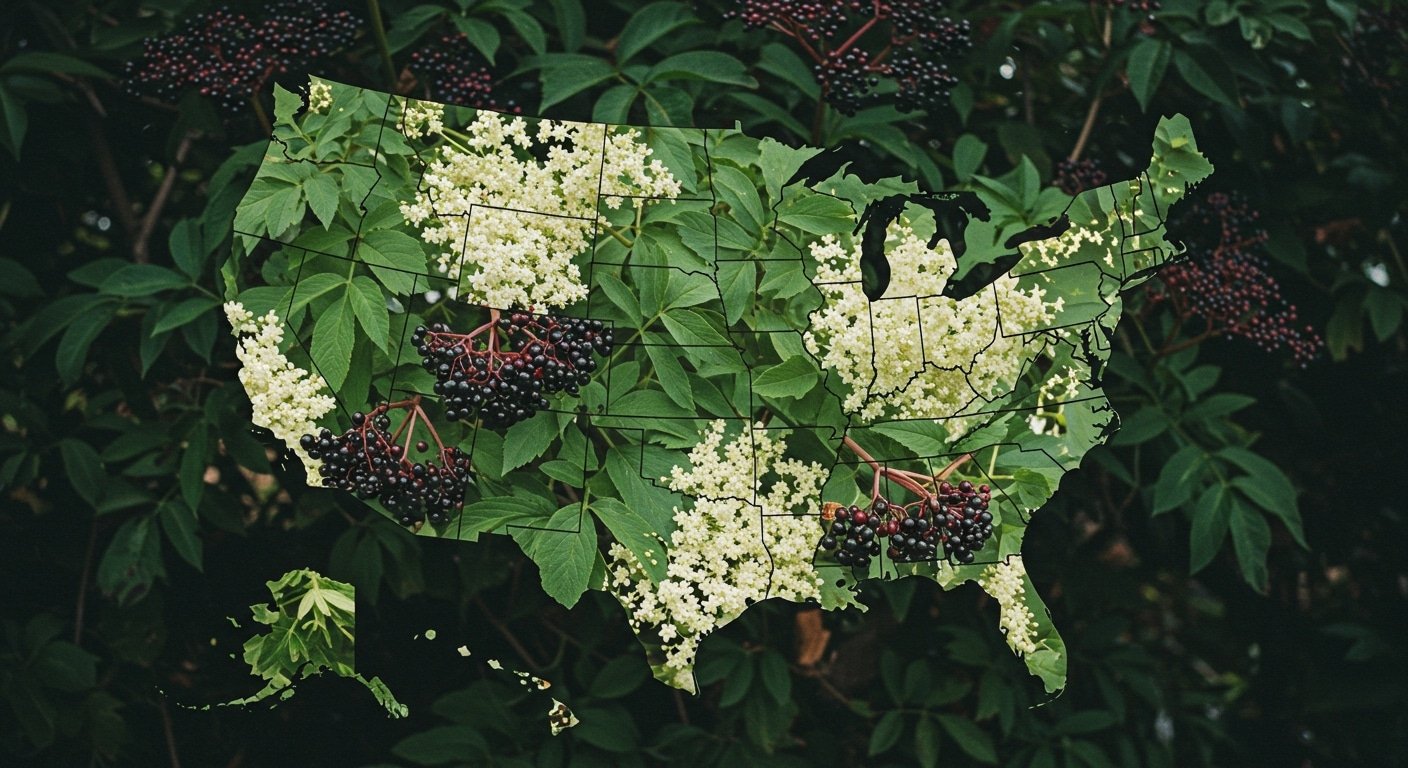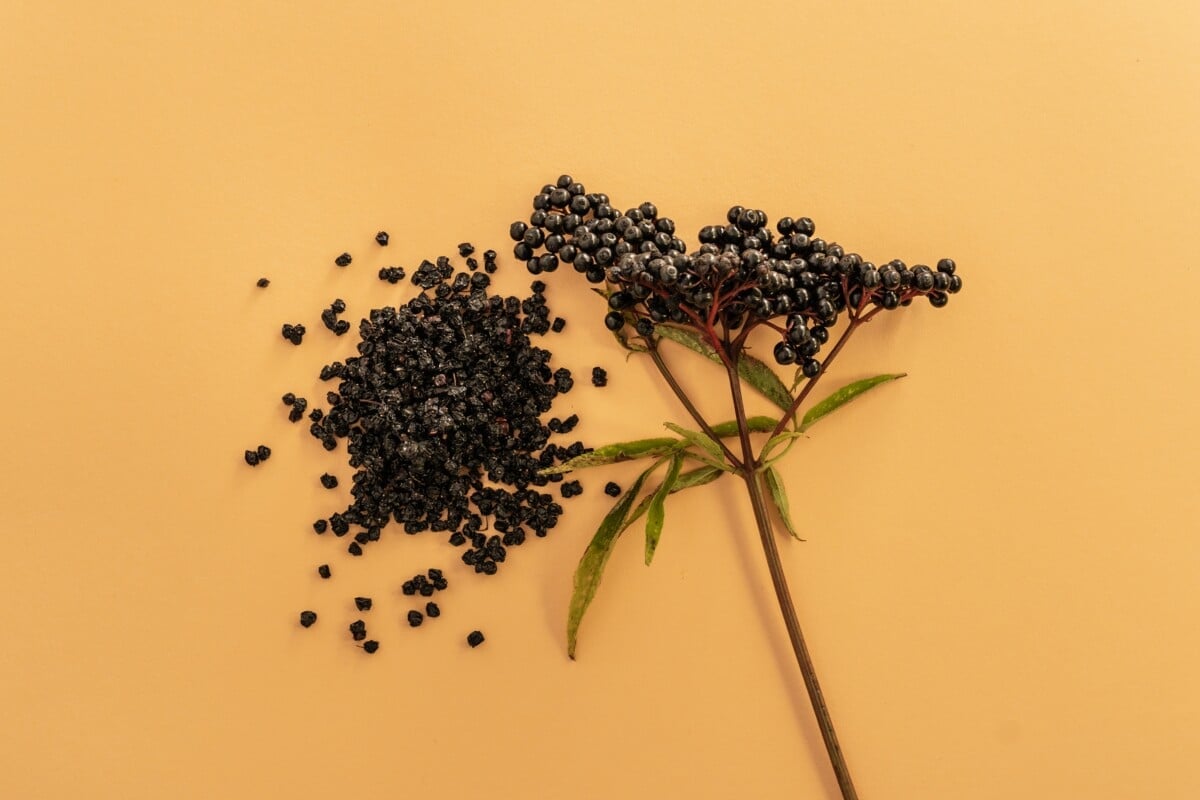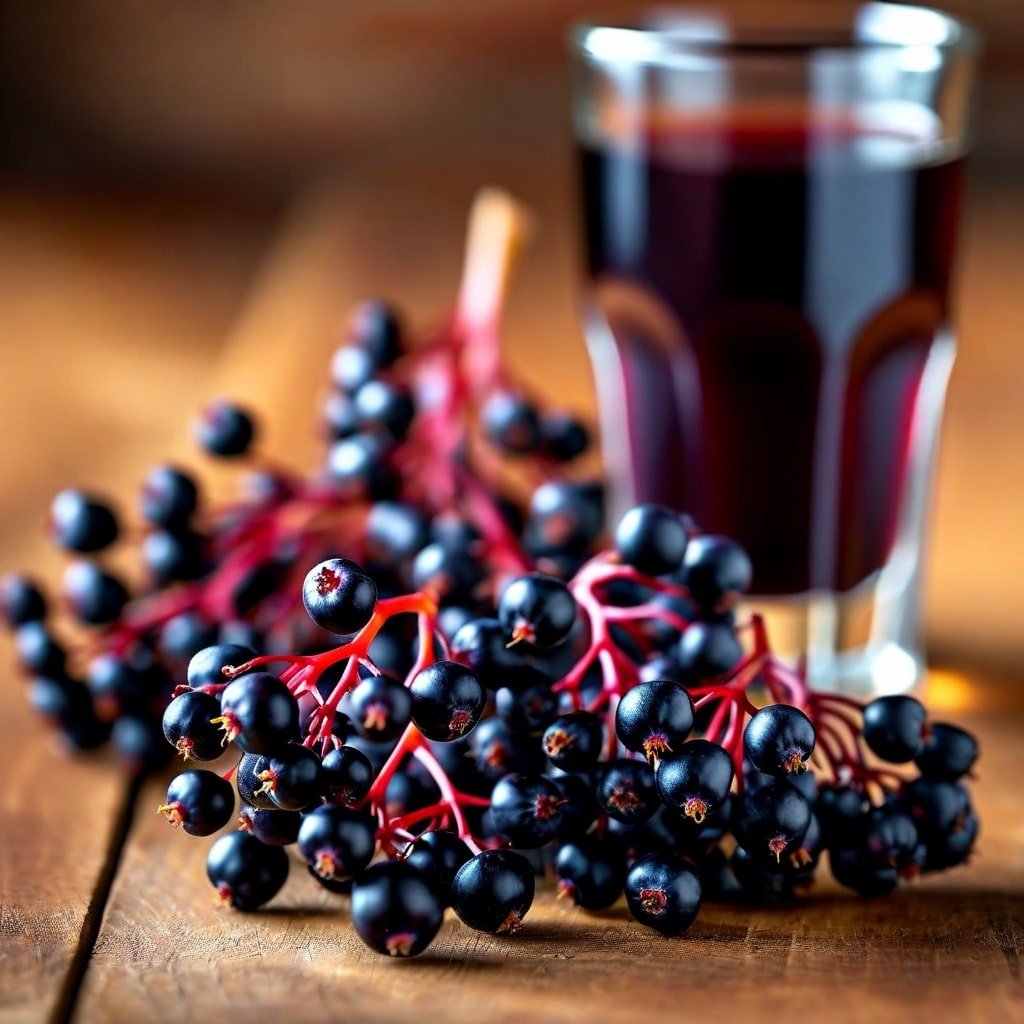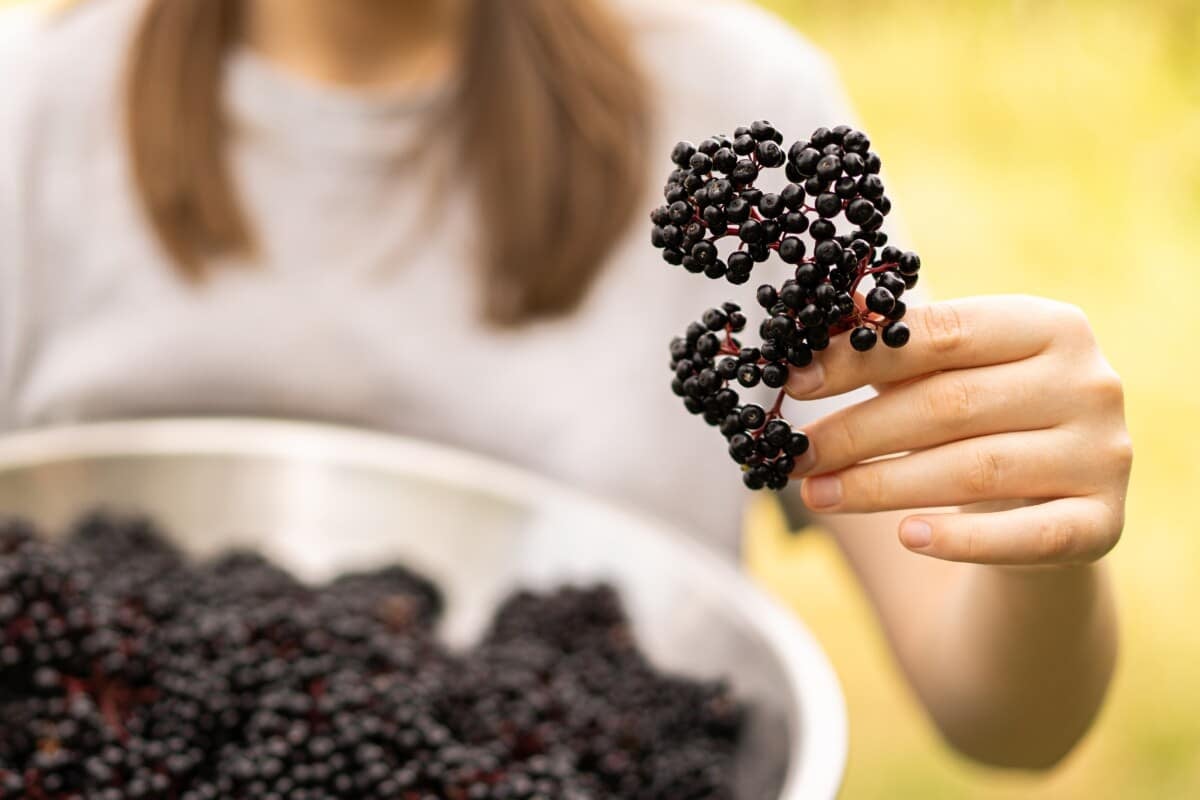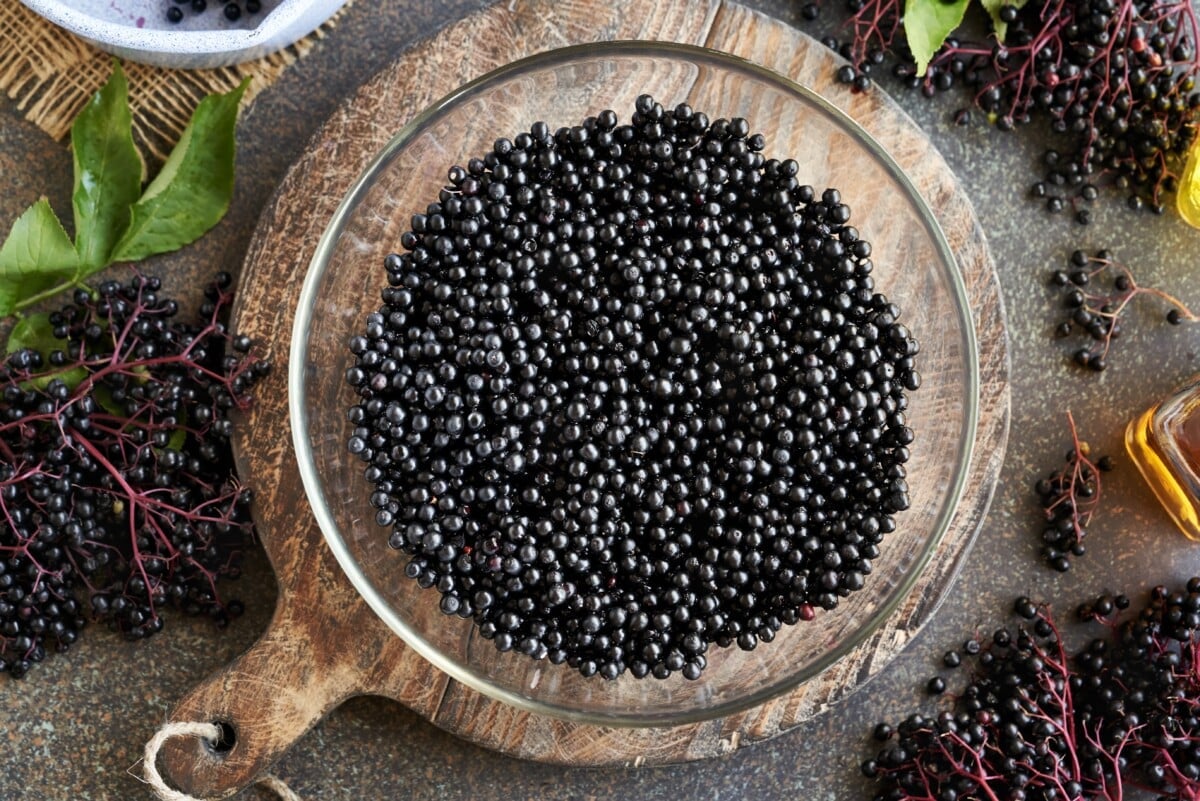
American Black Elderberry
What is Black Elderberry Good For?
Understanding the American Black Elderberry
The American Black Elderberry, known scientifically as Sambucus nigra L ssp Canadensis L, is a remarkable plant. It is a type of black elder (Sambucus nigra) and grows on the black elder tree, also referred to as the elder tree. It is native to North America and has been cherished for centuries. This elderberry is a subspecies of the European elderberry, yet it boasts unique traits.
The American Black Elderberry tree can grow up to 12 feet tall. It thrives in moist, fertile soils, making it a favorite among gardeners. American elder (Sambucus canadensis) is distinct from European elder (Sambucus nigra) and dwarf elder (Sambucus ebulus); only certain types, such as black elder, are used for their health benefits. Its dark purple berries and flowers are not just beautiful; they are also highly valued for their medicinal properties.
What is Black Elderberry Good For?
1. Immune System Support
- Elderberries are rich in anthocyanins, which boost immune response.
- Commonly taken during cold and flu season to reduce severity and duration of symptoms.
- Shown in studies to increase cytokine production (modulating immune activity).
2. Cold & Flu Relief
- Used to ease nasal congestion, coughing, sore throat, and fever, and also to help with upper respiratory infections.
- Some studies suggest it can shorten flu symptoms by 2–4 days when taken early.
- Often prepared as syrup or tincture for this purpose.
3. Antiviral Effects
- Exhibits activity against several strains of influenza viruses and may also have effects against other respiratory infections.
- Anthocyanins and flavonoids inhibit virus replication in lab studies.
4. Anti-inflammatory Properties
- Reduces markers of inflammation (like CRP) in some small studies.
- Traditionally used to calm respiratory inflammation or sinus pressure.
5. Antioxidant Protection
- Very high in polyphenols and vitamin C, which help neutralize free radicals.
- Supports cellular repair and slows oxidative stress damage.
6. Heart & Vascular Support
- May help reduce oxidized LDL cholesterol and improve blood vessel health, highlighting the potential of heart health elderberry for cardiovascular benefits.
- Some traditional uses include support for blood pressure regulation.
- Studies suggest that elderberry may help lower blood pressure by reducing uric acid levels.
7. Digestive & Gut Support
- In small doses, elderberry has been used for mild constipation relief (due to fiber content).
- Has been included in some bitters or digestive blends.
Some studies also suggest elderberry may have diuretic effects, potentially increasing urine production, though more research is needed to confirm this benefit.
8. Allergy & Sinus Relief
- Folk use includes easing sinus swelling, allergic rhinitis, and seasonal allergies.
- Anti-inflammatory and antioxidant effects may reduce histamine response.
9. Skin Health
- Elderberry extract is used topically for wounds, rashes, and acne in folk medicine.
- Antioxidants help protect against skin aging and damage.
What Does Black Elderberry Do?
1. Stimulates Immune Response
- Promotes production of cytokines, which help regulate immune defense.
- Helps the body detect and respond to infections more efficiently.
2. Fights Viral Infections
- Active compounds (like flavonoids and anthocyanins) bind to viruses and may block them from entering cells.
- Especially effective when taken at the first signs of flu or cold.
3. Reduces Inflammation
- Downregulates markers like IL-6 and CRP associated with chronic inflammation.
- Can help soothe sinus, throat, and respiratory inflammation during colds or allergies.
4. Acts as a Powerful Antioxidant
- Neutralizes free radicals and oxidative stress that damage cells.
- Helps protect tissues, blood vessels, and organs from long-term deterioration.
5. Relieves Cold & Flu Symptoms
- Shortens duration and intensity of fever, fatigue, coughing, and congestion.
- Often used in syrup or tincture form for symptomatic relief.
6. May Support Heart Health
- Some evidence suggests elderberry may reduce oxidized LDL cholesterol.
- Flavonoids may help maintain blood vessel elasticity and reduce blood pressure.
7. Supports Healthy Skin and Healing
- When used topically or internally, antioxidant compounds may help with:
- Acne
- Wound repair
- Skin elasticity
8. May Aid in Managing Allergies
-
- Anti-inflammatory action may reduce allergic responses, especially seasonal rhinitis or sinus swelling.
Notes & Cautions
- Raw elderberries, including uncooked berries and berries eaten raw, contain cyanogenic glycosides, which can cause nausea and other adverse effects — only consume fresh berries that have been properly cooked, dried, or properly extracted.
- Not recommended for use during pregnancy or in children under 2 without professional guidance.
- May interact with immune suppressants or diuretics; people taking these medications should consult a healthcare provider.
- Certain groups, such as those with autoimmune conditions or allergies, should avoid elderberry unless advised by a healthcare provider.
Rich in antioxidants, vitamins A, B, and C, and flavonoids, elderberries offer numerous health benefits. They are known to boost the immune system and may reduce the duration of colds and flu. This makes them a popular choice for natural health enthusiasts.
Elderberry supplements come in various forms, including capsules, gummies, and syrups. These products are widely available and easy to incorporate into daily routines. Elderberry syrup recipes are particularly popular for homemade remedies. Elderberry is available as dietary supplements and as a dietary supplement, but not all products are regulated for quality.
Black elderberry tea, made from dried elderberries, is soothing and flavorful. Elderberry extract, a concentrated form, is often used in supplements for its potent effects. The American Black Elderberry plant is also a lovely addition to landscapes, with its attractive flowers and berries.
Is American Black Elderberry edible? Yes, but the berries should be cooked to remove toxins. Cooking elderberries involves heating them to at least 180 degrees Fahrenheit (82 degrees Celsius) to ensure safety. This versatile plant offers both culinary and medicinal applications, making it a valuable addition to any home.
What Is American Black Elderberry? Botanical Overview and History
The American Black Elderberry, scientifically named Sambucus nigra L ssp Canadensis L, has a rich cultural and botanical history. Native to North America, it thrives in diverse environments.
Elderberry plants have been used for centuries by indigenous communities for their medicinal benefits. They are cherished in various folk traditions and continue to hold prominence today.
This plant is a deciduous shrub, notable for its dark purple berries and clusters of white flowers. These features make it easily recognizable in the wild and in gardens.
Botanically speaking, the American Black Elderberry is a subspecies distinct from the European elderberry. Despite these differences, both subspecies share several beneficial properties.
Here are some key botanical characteristics of the American Black Elderberry:
- It can reach heights of up to 12 feet.
- The leaves are pinnate, featuring multiple leaflets on a single stem.
- It produces creamy white flowers in spring and deep purple berries in late summer.
Throughout history, the berries and flowers have been utilized in various forms, including teas and extracts. Their uses range from culinary treats to vital medicinal applications.
Modern science confirms what many traditional users have believed for centuries. Elderberries are powerful allies in supporting health. The American Black Elderberry, with its unique attributes, continues to captivate both gardeners and herbalists. Today, elderberry remains a staple in natural and holistic health practices, connecting the past with the present. Its enduring relevance is a testament to its versatile properties and historical significance.
Identifying the American Black Elderberry Plant
Identifying the American Black Elderberry requires a keen eye for detail and knowledge of its distinct features. The plant’s appearance varies depending on the season.
In spring, the elderberry boasts clusters of small, white flowers. These flowers appear in umbrella-shaped clusters called cymes, adding a delicate touch to its foliage.
The leaves of this plant are compound and opposite, featuring serrated edges. Typically, each leaf consists of five to seven leaflets, giving it a lush, green appearance.
Identifying features include the elderberry’s characteristic berries, which ripen to a deep, purplish-black hue by late summer. These berries hang in dense clusters and are a staple in natural health products.
When identifying the American Black Elderberry, pay attention to its growth environment. It often thrives in moist, fertile soils and can be spotted near water bodies.
Here are some key markers to help you identify the American Black Elderberry:
- Look for a medium to large shrub, up to 12 feet tall.
- White flower clusters bloom from late spring to early summer.
- Dark purple berries mature in late summer to early fall.
- Compound leaves are arranged oppositely, with serrated edges.
Knowing these features can help distinguish the American Black Elderberry from other shrubs. Whether in the wild or a landscaped garden, this plant’s unique appearance makes it a standout. With practice, identifying this versatile plant becomes both easy and rewarding. Its presence often indicates a rich ecosystem, showcasing its importance in both natural and cultivated settings.
Dried berries are a common form of elderberry available in stores and can be used in recipes or supplements.
Growing and Caring for American Black Elderberry
Cultivating American Black Elderberry is a satisfying endeavor for gardeners of all skill levels. This hardy plant adapts well to various environments.
Elderberries thrive in fertile, well-drained soils. They prefer environments where moisture levels are consistent, especially during the growing season.
These plants love sunlight and flourish best with at least six hours of direct sunlight daily. However, they also tolerate partial shade.
When planting elderberries, space them about 6 to 10 feet apart. This allows room for their full growth and airflow between plants, reducing disease risk.
Regular watering is crucial, especially in dry spells. It ensures the plant receives adequate moisture, promoting healthy growth and fruit production.
Fertilization once a year with compost or a balanced fertilizer supports robust growth and berry yields. Avoid over-fertilization to prevent excessive leaf growth at the expense of berries.
Elderberries do not require much protection but monitoring for pests like aphids can be beneficial. Natural pest control methods, such as ladybugs, can help manage these intruders.
Common considerations for successful elderberry cultivation include:
- Selecting a site with full sun.
- Ensuring soil is rich in organic matter.
- Providing consistent watering schedules.
- Allowing ample space between plants for healthy growth.
With attention to these factors, you can grow a thriving elderberry bush that enhances your garden’s beauty and productivity.
Soil, Light, and Water Requirements
For American Black Elderberry, soil quality makes a significant difference. They prefer well-drained, loamy soils rich in organic matter to promote healthy root development.
Full sun exposure supports berry and flower production, though partial shade is also tolerated. Sites with partial shade should still offer several hours of sunlight.
Watering requires a balanced approach. Over-watering can lead to root rot, while under-watering can stunt growth and reduce berry yield.
Regular, deep watering helps maintain the moisture levels elderberries need. Keep the surrounding area mulched to retain moisture and regulate temperature.
Key factors to remember when growing elderberries include:
- Use well-draining soil to prevent waterlogging.
- Ensure the site provides at least 6 hours of sunlight.
- Maintain consistent moisture without over-watering.
By addressing these conditions, your elderberry plants will produce abundant, healthy fruits and provide a beautiful garden feature.
Pruning, Propagation, and Harvesting
Pruning American Black Elderberry is essential for maintaining shape and promoting fruit production. It should be done during dormancy in winter or early spring.
Remove dead, damaged, or weak branches to improve air circulation. This helps keep the plant healthy and increases berry production.
Propagation of elderberries is commonly done through cuttings. Softwood cuttings taken in late spring or early summer root well under proper conditions.
For harvesting, berries are typically ready in late summer. Wait until they reach a dark purple color, indicating they are fully ripe.
A few tips for elderberry maintenance include:
- Prune annually during dormancy for plant health.
- Use cuttings or seeds for propagation.
- Harvest berries when they’re fully ripe and dark.
These practices ensure that your elderberry plants remain productive and healthy. Consistent care yields both decorative and functional benefits for your garden.
Is American Black Elderberry Edible? Safety and Toxicity
American Black Elderberry is indeed edible, but with specific precautions in mind. The berries must be cooked before consumption to ensure safety. Symptoms of consuming toxic parts of the elderberry plant include nausea, vomiting, weakness, dizziness, numbness, and stupor. There are no reports of fatalities from eating cooked elderberries, though caution is advised with other parts of the plant.
Raw elderberries contain cyanogenic glycosides, compounds that can release cyanide, making them potentially harmful. Cooking eliminates these toxins, making the berries safe to eat.
The flowers of the elderberry plant are also edible and can be used in teas and culinary recipes. These parts do not contain the same toxins found in raw berries.
However, the leaves, stems, and roots are not safe to consume. They contain toxic compounds that can cause nausea or more severe symptoms if ingested.
If you plan to use elderberries, it’s important to follow these safety guidelines:
- Always cook berries before eating to neutralize toxins.
- Use flowers for culinary purposes; avoid leaves, stems, and roots.
- Practice caution when foraging, ensuring proper identification.
Knowing how to handle elderberries correctly allows you to enjoy their benefits without risk. Cooked elderberries offer a flavorful and nutritious addition to your diet. Whether in syrups, teas, or desserts, their use can be both safe and enjoyable when these precautions are followed. Elderberry products should be prepared correctly to avoid toxicity; many homemade recipes may not specify proper cooking temperatures.
Nutritional Profile and Health Properties
American Black Elderberry is rich in essential nutrients, making it a valuable addition to the diet. The berries are packed with vitamins and antioxidants that support overall health. Elderberry juice is a popular way to consume these nutrients and antioxidants.
Key Nutrients Found in Elderberries:
- Vitamins: A, B, and C.
- Minerals: Potassium, iron, and calcium.
- Flavonoids: Anthocyanins, quercetin.
These components help protect the body from oxidative stress and enhance immune function. The antioxidants in elderberries are particularly potent, combating free radicals.
Elderberries are also a significant source of dietary fiber, which can aid digestion and support gut health. This fiber helps maintain a healthy digestive system and regular bowel movements.
Health Properties of Elderberries Include:
- Anti-inflammatory effects.
- Antiviral properties.
- Heart health support.
Studies indicate that elderberries can reduce inflammation, which is linked to numerous chronic diseases. The flavonoids found in these berries are known for their anti-inflammatory action.
The antiviral nature of elderberries is another key benefit. Research suggests they may inhibit the replication of viruses, especially those causing colds and the flu.
Including elderberries in your diet can also support cardiovascular health. Their antioxidants and fiber contribute to lower cholesterol levels and improved heart function.
Incorporating these berries into regular meals can provide a tasty and health-promoting option. Whether through teas, syrups, or extracts, elderberries offer a natural way to boost health.
The comprehensive nutrient profile of elderberries underscores their traditional and modern use in natural remedies. Using them wisely allows you to harness these benefits effectively and enjoy their potential advantages in multiple aspects of health.
Black Elderberry Benefits: Science-Backed Uses
The American Black Elderberry offers numerous health benefits supported by scientific research. Its impressive profile attracts attention for both medicinal and nutritional purposes.
While elderberry has been widely used in complementary and integrative health and integrative health practices, there is limited scientific evidence to support many of its purported benefits. Integrative medicine specialists may recommend elderberry as part of a holistic approach, but caution that there is not enough evidence to confirm all health claims.
Key elderberry benefits arise from their rich antioxidant content. These antioxidants play a critical role in combating oxidative stress, reducing cellular damage.
Further research and research is needed to fully understand elderberry’s effects and validate its health benefits.
Scientific Backing for Elderberry Benefits:
- Immune support: Boosts immune response and reduces cold symptoms.
- Antiviral effects: Inhibits the growth of viruses, including influenza.
- Anti-inflammatory properties: Helps diminish inflammation in the body.
- Cognitive health support: May enhance brain function and prevent decline.
Research highlights elderberries’ impact on the immune system. They bolster immune defenses, aiding the body in fighting infections more effectively.
Numerous studies suggest elderberries might hinder viral replication. This effect is particularly evident against common cold and flu viruses.
Elderberries’ anti-inflammatory effects cannot be overlooked. Chronic inflammation is linked to illnesses like arthritis and heart disease, and elderberries potentially help by mitigating these responses.
Emerging evidence suggests elderberries may support cognitive function. Their antioxidants might delay cognitive decline, promoting long-term brain health.
Beyond these uses, elderberries are lauded for their heart health benefits. They can improve lipid profiles and reduce cholesterol, supporting cardiovascular wellness.
Incorporating elderberries into a balanced diet is a strategic approach to harness these scientifically-backed benefits. Whether consumed as tea, syrup, or extract, their health-promoting effects make elderberries a valuable natural remedy.
Elderberry for Immunity and Colds
Elderberries have garnered attention for their role in boosting immunity. Their potent compounds can significantly aid in warding off illnesses.
Key ways elderberries enhance immunity include:
- Stimulating immune cells: Prompts the production of cytokines.
- Reducing cold duration: Shortens recovery time during colds.
- Relieving symptoms: Decreases the severity of flu and cold symptoms.
Research demonstrates that elderberries stimulate cytokine production. Cytokines are essential proteins that help coordinate the body’s immune response.
Elderberries are particularly effective in reducing the duration of colds. Studies show a significant decrease in recovery time for those taking elderberry supplements.
Moreover, elderberries are known for symptom relief during colds and flu. They reduce common issues like congestion, sore throats, and coughing.
The capacity of elderberries to enhance immunity and ease cold symptoms makes them a sought-after natural remedy. These benefits show why elderberries are a staple in traditional and modern medicinal practices for immune support.
In summary, elderberry is primarily used for managing viral infection symptoms, with research supporting its immune-boosting properties and its ability to reduce the severity and duration of cold and flu symptoms. Proper usage and safety considerations are important when using elderberry for these purposes.
Traditional and Modern Uses of American Black Elderberry
The American Black Elderberry has a rich history of use in traditional medicine. Native American tribes valued this plant for its healing properties.
Historically, elderberries were employed to treat various ailments. Remedies included treating respiratory infections, relieving pain, and healing wounds. Eating elderberries, especially when cooked or used in supplements, is believed to support immune health and reduce cold and flu symptoms, but it is important to consider safety, as raw berries can be toxic and there may be potential drug interactions or allergies.
Native Americans commonly utilized elderberry flowers and berries for teas and poultices. These treatments aimed to alleviate ailments like fever and arthritis.
In modern times, elderberries remain popular in complementary medicine. Their uses have expanded alongside scientific discovery of their health benefits.
Contemporary uses of elderberry include immune-boosting products. Consumers find it in supplements like syrups, capsules, and gummies, widely available in health stores.
Additionally, elderberries appear in beauty products for skin health. Their antioxidants help combat aging and provide soothing effects.
Common Uses of American Black Elderberry:
- Traditional remedies: Teas, poultices, and pain relief.
- Modern supplements: Syrups, capsules, and gummies.
- Skincare applications: Anti-aging and soothing products.
- Culinary uses: Beverages, jams, and more.
- Respiratory health: Support for colds and flu symptoms.
In culinary arts, elderberries have found a niche. They enhance dishes with their tart flavor and vivid color, perfect for jams and wines.
The plant’s versatility ensures its enduring presence in both traditional and modern applications. From ancient remedies to contemporary uses, the American Black Elderberry continues to offer diverse benefits.
Elderberry Supplements: Extracts, Syrups, and Tinctures
Elderberry supplements are popular for their health-boosting properties. Available in various forms, they cater to diverse health needs.
Elderberry extract is a powerful concentrated form. It’s made from elderberries’ juice, retaining active compounds and nutrients.
This extract is often used in capsules and gummies. It provides a convenient way to incorporate elderberry into daily routines.
Elderberry syrup is another favored option. Known for its immune support, it’s used to tackle colds and flu.
Syrups are typically sweetened with honey or sugar. This enhances their palatability while maintaining their health benefits.
Tinctures are liquid extracts made with alcohol or glycerin. They capture a wide range of elderberry’s active compounds.
Tinctures offer quick absorption and ease of use. A few drops under the tongue can deliver potent effects.
However, elderberry supplements should not be marketed with unsubstantiated claims about their effectiveness, especially regarding serious illnesses.
Common Elderberry Supplement Forms:
- Extracts: Capsules, gummies, and liquids.
- Syrups: Immune support for colds and flu.
- Tinctures: Fast-acting liquid extracts.
Each form has its unique benefits and usage. The choice depends on personal preference and specific health goals.
When selecting elderberry supplements, quality matters. Ensure products use high-quality, pure elderberry and follow recommended dosages. The recommended dosage for elderberry supplements varies but is often between 5 to 15 mL. However, there are no established standard dosages for elderberry supplements for specific health conditions.
Benefits of Elderberry Supplements:
- Convenience: Easy to incorporate into daily life.
- Variety: Multiple forms suit different preferences.
- Efficiency: Quick absorption and targeted effects.
- Support: Boosts immunity and overall wellness.
- Caution: Many elderberry products available on the market may not contain actual elderberry but other parts of the plant or different ingredients.
Elderberry supplements are widely available in health food stores and online. Their versatility and benefits make them a staple in many health regimens.
Regardless of form, these supplements harness elderberry’s health-boosting power. They offer natural support for immunity and overall vitality.
How to Make Black Elderberry Tea, Syrup, and More: Recipes and Tips
Creating your own elderberry-based remedies can be a rewarding endeavor. With a few ingredients, you can make black elderberry tea, syrup, and more.
Black elderberry tea is soothing and simple to prepare. Just steep dried elderberries in hot water for a few minutes.
Add honey or lemon for enhanced flavor. This tea is perfect for cold evenings when you need comfort.
Elderberry syrup is a favorite for boosting immune health. Simmer elderberries with water until reduced by half, then strain.
Sweeten with honey and store in a jar. This syrup can be used on pancakes or taken by the spoonful.
For an invigorating twist, consider making elderberry-infused honey. Mix dried elderberries with honey and let them meld over time.
This infused honey can be a flavorful addition to teas and desserts. The infusion process helps extract the benefits of elderberries effectively.
Basic Black Elderberry Tea Recipe:
- Ingredients: Dried elderberries, hot water, honey (optional)
- Steps: Steep berries, strain, add honey
Simple Elderberry Syrup Recipe:
- Ingredients: Fresh elderberries, water, honey
- Steps: Simmer berries, strain, mix with honey
These recipes are not only easy but also allow for customization. For instance, add spices like cinnamon or cloves for a festive touch.
Creating elderberry products at home ensures freshness. Plus, you can adjust sweetness and flavors to your liking.
By incorporating these recipes, you embrace the versatility of elderberries. It’s a delightful way to enjoy their benefits year-round.
Culinary Uses: Jams, Jellies, Wines, and More
American black elderberry is not just medicinal but also a culinary delight. Its tart flavor adds a unique taste to many recipes.
Elderberry jams and jellies are classic staples. They offer a sweet and tangy spread perfect for morning toast.
To make elderberry jam, cook elderberries with sugar and lemon juice. The mixture thickens as it cools, creating a delicious jam.
Elderberry wine is another delightful creation. This fruit wine captures the essence of elderberries in a refined drink.
Ferment elderberries with sugar and yeast to create the wine. The result is a rich beverage with a robust flavor profile.
Elderberries can also be used in baked goods. A handful of berries in muffins or pies imparts a fruity twist.
Common Culinary Applications:
- Jams and jellies for spreads
- Elderberry wine for unique flavor
- Pies and muffins for fruity notes
These culinary uses highlight the versatility of elderberries. They’re not just tasty but also add nutritional value.
Exploring these recipes can transform elderberries into everyday favorites. Enjoy experimenting with this remarkable fruit in your kitchen.
Elderberry in the Garden: Landscaping and Wildlife Value
The American black elderberry is a gardener’s delight. Its versatile nature makes it ideal for both beauty and function.
This plant enhances gardens with its lush foliage and delicate flowers. In summer, its clusters of white blooms provide aesthetic appeal.
Beyond its beauty, the elderberry bush supports wildlife. Birds feast on its berries, and pollinators visit its flowers.
Planting elderberry contributes to a thriving ecosystem. It offers shelter and nourishment to various creatures.
Landscaping and Ecological Benefits:
- Attractive white flowers in summer
- Berries for birds
- Habitat for pollinators and wildlife
Adding elderberry to your garden enriches your green space. It blends ornamental value with ecological significance.
When well-placed, elderberry can create a vibrant garden area. It is a sustainable choice that benefits both the environment and the gardener.
Consider including this resilient shrub in your landscape designs. It promises beauty and biodiversity in one remarkable package.
Potential Side Effects, Interactions, and Precautions
American black elderberry is largely safe, yet precautions are necessary. Despite its benefits, some side effects may occur in certain cases. Individuals allergic to honeysuckle or elderberry should avoid consuming elderberry products. Elderberry is not recommended for children and adolescents under 18 years old, or pregnant or lactating women due to safety concerns.
Consuming raw berries is ill-advised due to their potential toxicity. Always cook the berries to neutralize harmful compounds.
Additionally, elderberry may interact with medications. Be cautious if you’re on diuretics or diabetes medication, as interactions could happen.
Possible Side Effects and Considerations:
- Nausea or diarrhea from raw berries
- Allergic reactions in sensitive individuals
- Interactions with immunosuppressive drugs
- There is no evidence of serious adverse effects from commercial elderberry supplements, but some report abdominal pain, nausea, and vomiting.
Always consult a healthcare provider before starting elderberry supplements, especially if you have medical conditions. Monitoring for reactions is also vital.
Pregnant or breastfeeding women should exercise caution, as adequate studies are lacking. Prioritize safety when considering elderberry in your regimen.
Overall, while elderberry offers numerous health advantages, understanding risks ensures it’s a beneficial part of your lifestyle.
Frequently Asked Questions About American Black Elderberry
Curiosity about American black elderberry spans many topics. Below, we address some common questions to enhance your understanding.
What is American black elderberry best known for?
It is renowned for its immune-boosting properties. Many use it to help ward off colds and flu.
Can I eat elderberries raw?
Eating raw elderberries is not safe. Cooking is necessary to break down toxic components in the berries.
How can I use elderberry in my daily routine?
Elderberry finds its way into teas, syrups, and tinctures. You can integrate these forms into your wellness regimen.
What parts of the plant are used in remedies?
Typically, both the berries and flowers are used. These parts offer numerous health benefits when prepared correctly.
Does elderberry have any significant side effects?
Side effects are rare but can include mild digestive issues. Always consult a healthcare provider for personalized advice.
Here’s a quick checklist for elderberry use:
- Use cooked berries only
- Consult with a doctor before use
- Enjoy in various forms: teas, syrups, and extracts
- Store elderberry in a cool, dry place and out of reach of children.
- Use cooked berries only
- Consult with a doctor before use
- Enjoy in various forms: teas, syrups, and extracts
Conclusion: The Versatile Power of American Black Elderberry
American black elderberry shines as a versatile plant with rich benefits. Its value extends from health applications to culinary delights, making it a staple in both traditional and modern uses.
The plant’s immune-supporting properties and high antioxidant content are especially noteworthy. These aspects have made elderberry a favored choice for natural health enthusiasts.
Incorporating
Products With American Black Elderberry
More On American Black Elderberry
Key Takeaways Elderberry tea is made from cooked elderberries of the Sambucus nigra plant and is rich in vita [...]
Views: 14218 min readDoes elderberry help with allergies? Many people turn to natural remedies to manage their allergies, and elde [...]
Views: 1679 min readElderberry has been touted for various health benefits, but does elderberry make you lose weight? This underappreciat [...]
Views: 17813 min readWant to know how much elderberry syrup per day to take to boost your immunity? Here’s what you need: Adults can gene [...]
Views: 18415 min readIf your elderberry leaves curling are present, you’re likely wondering what’s causing it and how to fix it. H [...]
Views: 1868 min readCurious about elderflowers benefits? These blossoms from the black elder tree have been trusted for centuries [...]
Views: 18711 min readElderberry bloom refers to the period when elderberry plants produce clusters of white flowers, typically in early s [...]
Views: 19312 min readElderberries come in several varieties, each with its own unique traits. The Sambucus genus, often referred to as Sa [...]
Views: 1947 min readProper elderberry plant spacing is key to healthy growth and high yields. This guide covers ideal distances, influen [...]
Views: 1949 min readElderberry plant height typically ranges from 6 to 12 feet, influenced by species and growing conditions. This articl [...]
Views: 20110 min readOrnamental elderberry plants bring striking foliage and vivid berries to your garden. These fast growing shru [...]
Views: 20212 min readWondering how to care for elderberry in winter? This article provides crucial tips on pruning, mulching, and protect [...]
Views: 2037 min readWhen elderberry bushes bloom, they transform with clusters of white flowers, typically starting in late spring. This [...]
Views: 20411 min readAn elderberry hedge can enhance your garden’s beauty and productivity. Once mature, elderberry hedges provide dense [...]
Views: 20612 min readIs it safe to use elderberry when breastfeeding? Many new mothers wonder about this natural remedy. In this article, [...]
Views: 20813 min readElderberry trees are known for their beautiful blossoms and nutrient-rich berries. These fast-growing shrubs or smal [...]
Views: 21112 min readIdentifying Elderberry: A Visual Guide For Plant Enthusiasts Using Leaf Images Need elderberry leaf images to help i [...]
Views: 21418 min readElderberry syrup helps relieve sore throats by reducing inflammation and soothing irritation, making it an ef [...]
Views: 21614 min readLooking for a picture of elderberry plant to identify it or understand its features? In this guide, you’ll find deta [...]
Views: 21610 min readTo ensure your elderberry bushes thrive, plant them 6-8 feet apart and space rows 10 feet apart, considering [...]
Views: 21616 min readWondering how to grow elderberry shrubs? These plants are known for their beauty and versatility. In this guide, you [...]
Views: 21713 min readElderflowers Benefits: Fresh Elderberry Tincture Recipe Curious about how elderflowers can enhance your health? From [...]
Views: 21715 min readWondering if elderberries are bushes or trees? Elderberries can grow as either, depending on their species and envir [...]
Views: 21814 min readElderberry shoots are new growths from elderberry plants, vital for propagation. This article explains how to identi [...]
Views: 21910 min readUnderstanding elderberry bushes size is key to planning your garden. Elderberry bushes usually grow between 6 to 10 f [...]
Views: 22814 min readThis is a review of a recent study regarding elderberry juice, and its possible support for cognitive function. Plea [...]
Views: 22910 min readElderberry bushes can grow between 5 to 20 feet tall and spread 6 to 12 feet wide, making them a substantial additio [...]
Views: 2309 min readGrowing and Caring for Elder Berry Plants: A Comprehensive Guide Elder berry plants are shrubs that produce attractiv [...]
Views: 23113 min readWondering what an elderberry tree is and why you should grow one? An elderberry tree, from the Sambucus genus, not o [...]
Views: 23613 min readAn elderberry bush is a deciduous shrub or small tree with multi-stemmed growth, typically growing between 5 [...]
Views: 23914 min readDetailed Instructions Many people have asked us how to make fresh Elderberry tincture. Elderberry tincture is a concen [...]
Views: 2447 min readAmerican Elderberry Benefits: What Is the American Elderberry Flower? The American elderberry (Sambucus canadensis), [...]
Views: 25215 min readElderberry Flowers: Traditional Uses, Medicinal Benefits, and How to Use Them at Home New here? Start with the Elder [...]
Views: 25315 min readWhen Do Elderberries Flower: A Quick Guide New here? Start with the Elderberry Flowers & Growing Guide. If you’v [...]
Views: 25914 min readIntroduction to Elderflower and Elderberry The Historical Significance of Elderflowers Elderflowers and elderberries [...]
Views: 2648 min readIf you've ever wondered, "What does an elderberry flower look like?" you're not alone. Recognizing elderberry in the [...]
Views: 26913 min readNew here? Start with the Elderberry Flowers & Growing Guide. Elderberries (genus Sambucus) are well-known for th [...]
Views: 2716 min readElderberry Health Benefits: Unlocking the Power of Sambucus Nigra Sambucus, commonly known as elderberry, refers to [...]
Views: 2725 min readWhen it comes to treating bruises, many people look for natural remedies that can help speed up the healing process. [...]
Views: 2773 min readCan elderberry syrup relieve your sore throat? Yes, elderberry syrup can help reduce throat irritation and swelling. El [...]
Views: 28314 min readElderberry tea has been cherished in traditional medicine for its healing qualities and rich flavor. Made from the d [...]
Views: 2929 min readI ate raw elderberries. What happens next? Raw elderberries can cause nausea, vomiting, and other symptoms because o [...]
Views: 29217 min read# Exploring the Health Benefits of Green Tea and Elderberry Green tea and elderberry are two natural ingredients tha [...]
Views: 2925 min readElderberry Florist: Why You Shouldn’t Rely on Florists for Herbal Elderberry Flowers Quick Summary Key Points Topic [...]
Views: 2936 min readElderberry Leaves Benefits: Essential Guide to Uses and Considerations Quick answer. Discussions of elderberry leave [...]
Views: 29513 min read# Exploring the Health Benefits of Elderberry and Zinc When it comes to boosting your immune system, elderberry and [...]
Views: 2963 min readWondering if elderberry affects your Coumadin (Warfarin) therapy? This article will look at potential interactions a [...]
Views: 30324 min readElderberry Weight Loss: Benefits Explained Elderberry, a small, dark-purple fruit, is often lauded for its immune-bo [...]
Views: 3136 min readElderberry juice is packed with essential nutrients. It's an excellent source of vitamin C, dietary fiber, and antio [...]
Views: 3169 min readIntroduction: What Is Elderberry Tincture? Elderberry tincture is a concentrated liquid extraction made by steeping [...]
Views: 3228 min readElderberry tea has long been cherished for its medicinal properties, offering a natural remedy for a variety of ailm [...]
Views: 3388 min readElderberry and Covid: The Ongoing Battle Against Respiratory RNA Viruses Respiratory RNA viruses like SARS-CoV-2 and [...]
Views: 35210 min readElderberry juice is gaining popularity for its potential health benefits, including boosting the immune system and prov [...]
Views: 3632 min readHow to Treat Elderberry Poisoning: Effective Steps and Solutions Quick answer: Elderberry poisoning most often happe [...]
Views: 3747 min readDoes Elderberry Tea Make You Sleepy? Introduction to Elderberry Tea Elderberry tea is a warm, soothing drink that sup [...]
Views: 39313 min readMedicinal Attributes for the American Elderberry – An Overview Best Elderberry Plant for Medicinal Use Among all eld [...]
Views: 4044 min readElderberry is a popular natural remedy known for its immune-boosting properties. Many people turn to it durin [...]
Views: 41326 min readElderberries have been used for centuries for their health benefits and are now gaining popularity as more people look [...]
Views: 4274 min readElderberry syrup has gained significant popularity as a natural remedy for boosting the immune system and combating col [...]
Views: 4309 min readWhy Elderberry Plants Are Worth Growing Elderberry bushes provide fruit rich in antioxidants and vitamin C, and they [...]
Views: 4315 min readElderberry supplements have become increasingly popular as a natural remedy for boosting the immune system. Elderber [...]
Views: 4504 min readWhere to Buy Elderberry Syrup at Farmers Markets Introduction to Farmers Markets One thing that you'll have to under [...]
Views: 45111 min readExploring the Benefits of Elderberry Tincture Elderberry tincture has gained popularity in recent years, but what mak [...]
Views: 4677 min readElderberries, those tiny, dark purple fruits, have been gaining popularity for their health benefits and unique flav [...]
Views: 5178 min readIntroduction to Elderberry Remedies One thing that you’ll have to understand about elderberry remedies is that they’ [...]
Views: 59318 min readWith all the buzz around Black Elderberry, you might be wondering what it’s all about. Many people are asking the same [...]
Views: 65813 min read
Masterful Display
Each and everyone of our products are deeply considered, labored over, and improved upon time and time again. We invite you to experience the difference of our carefully crafted small batches of herbal support items. Whether it be our tea line, produced for a delightful experience, or our tincture blends and extracts, we have what you need.





